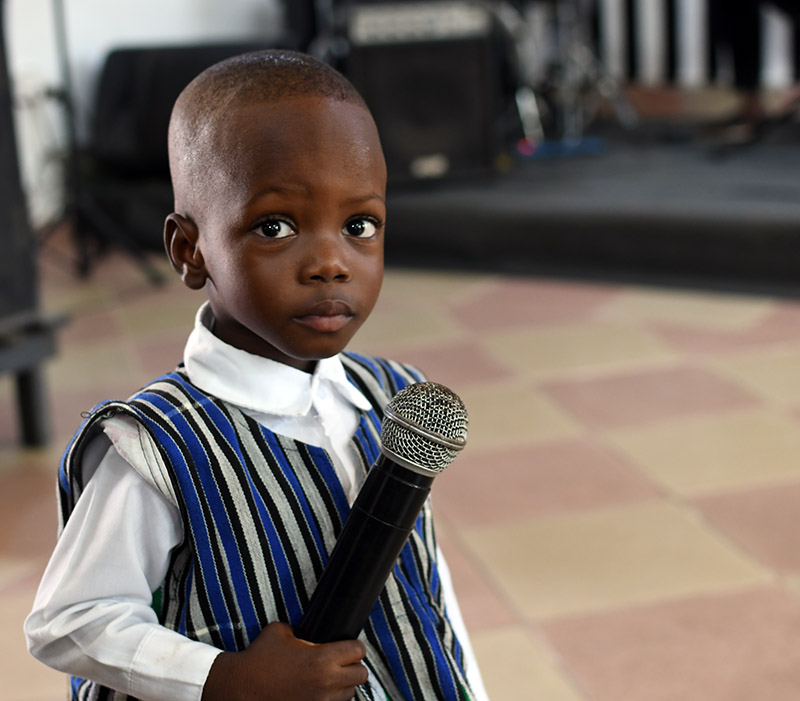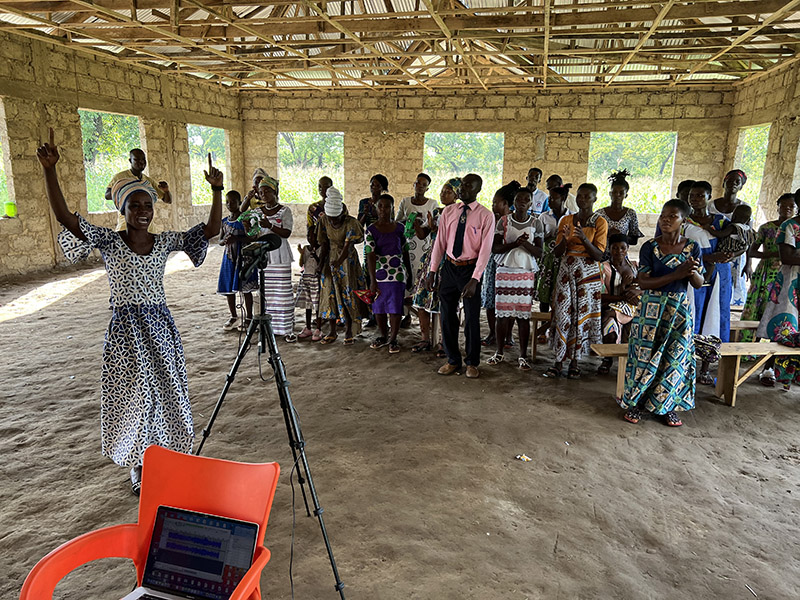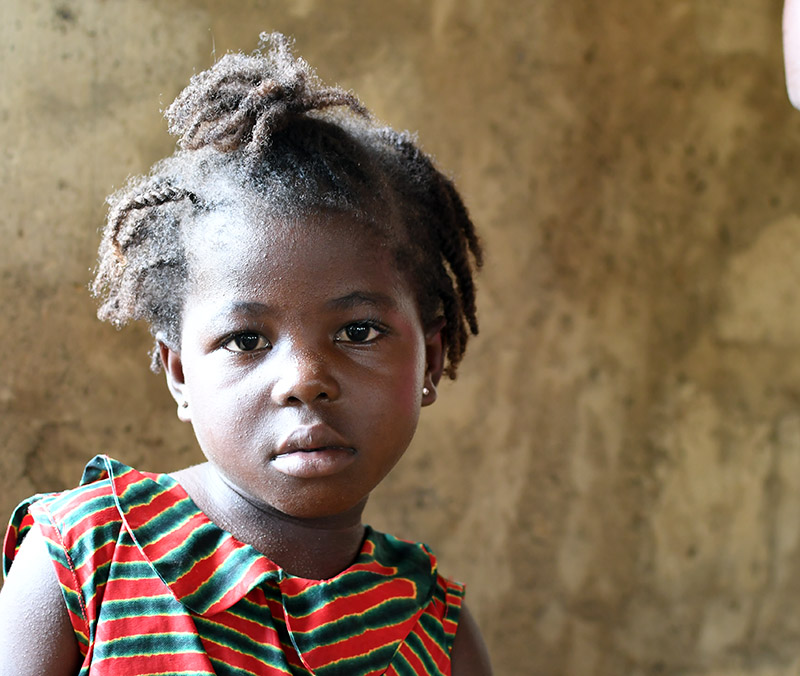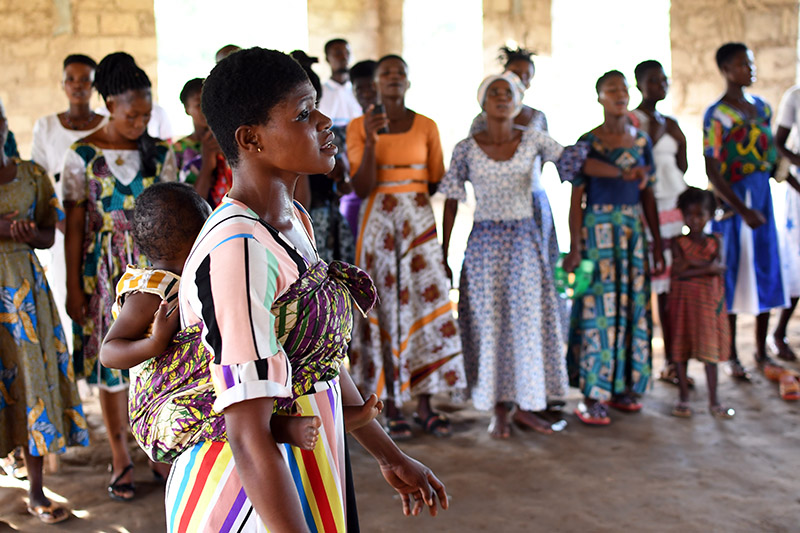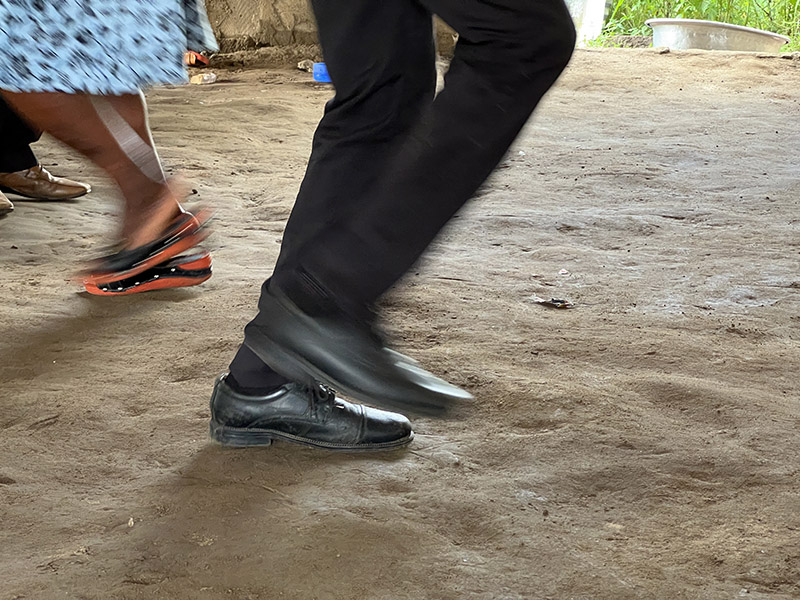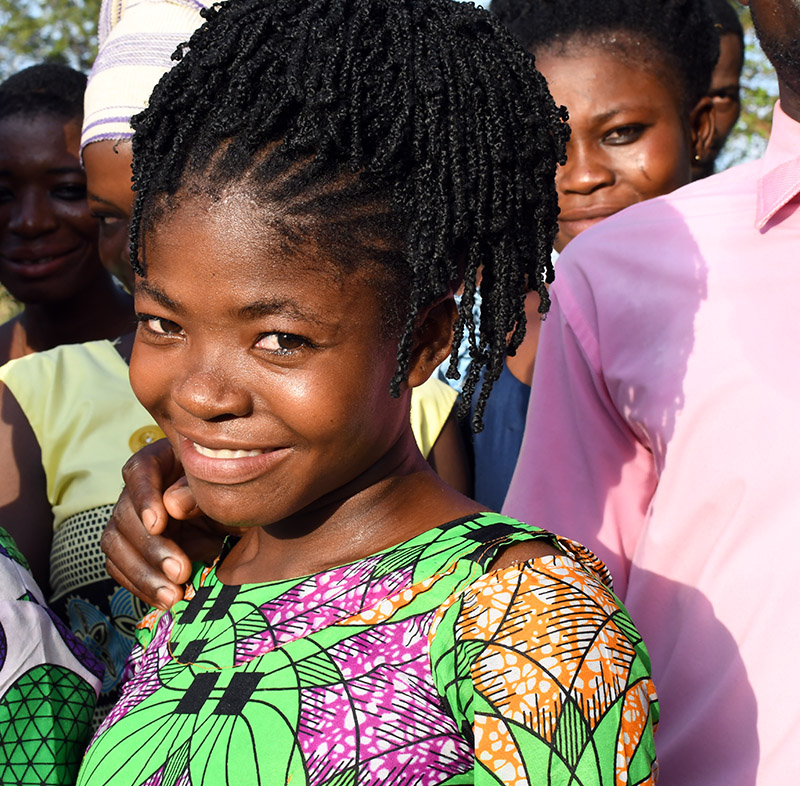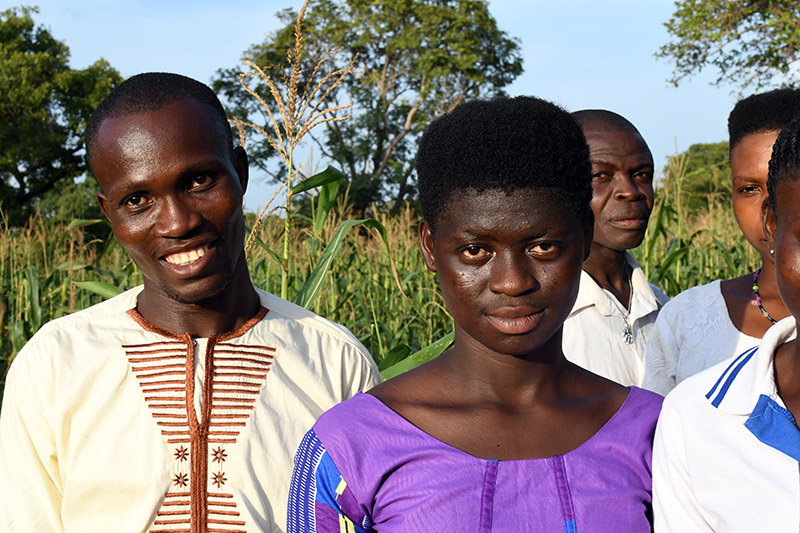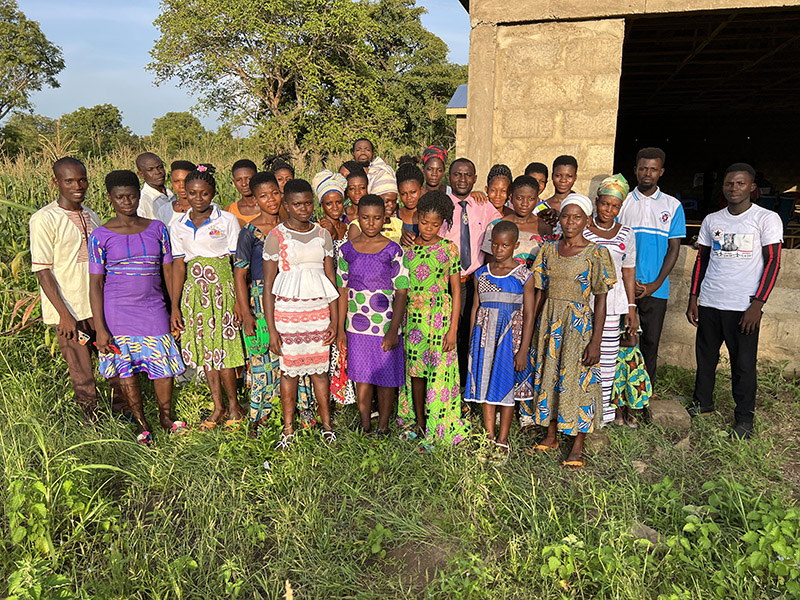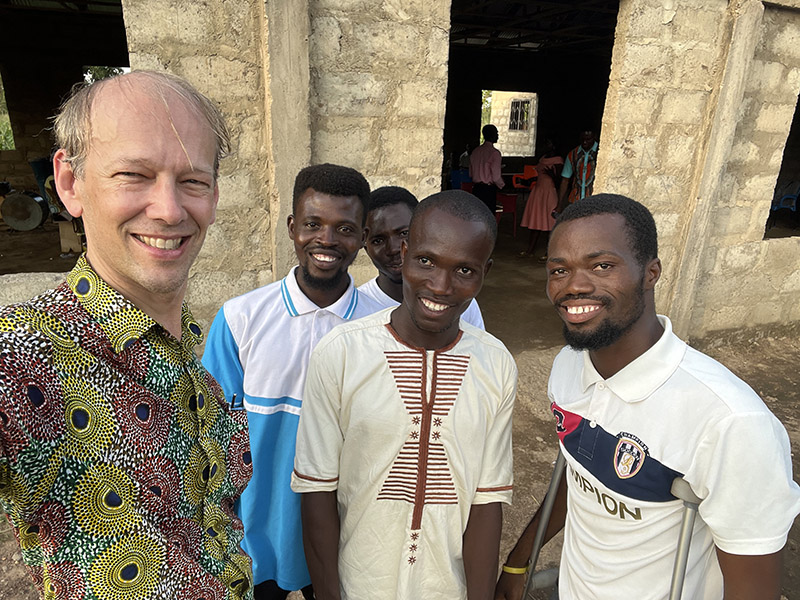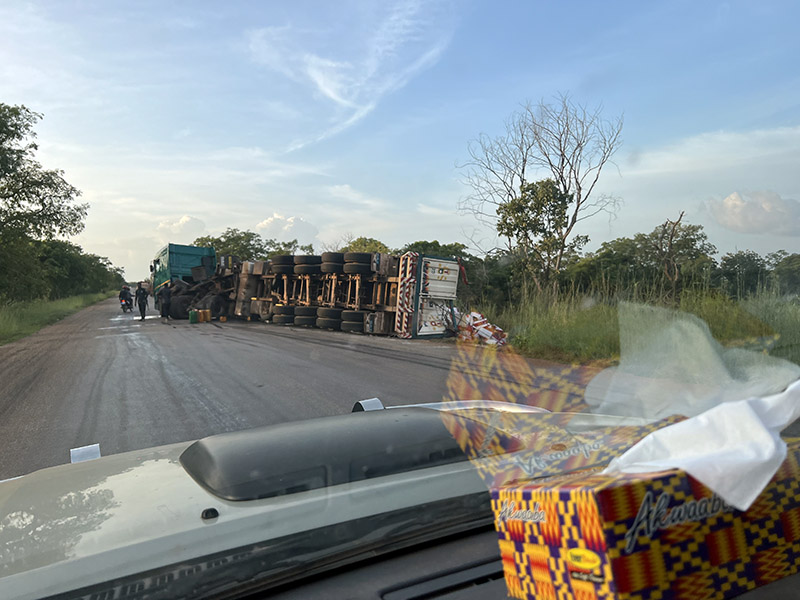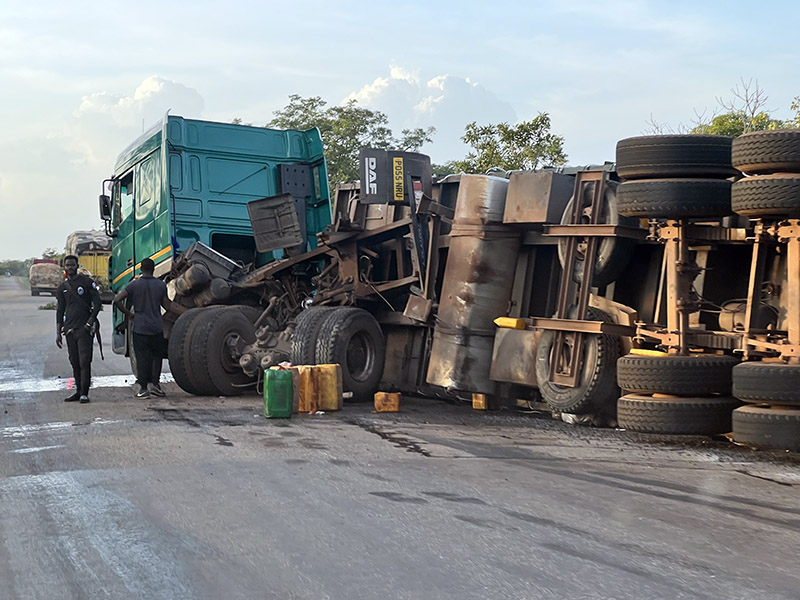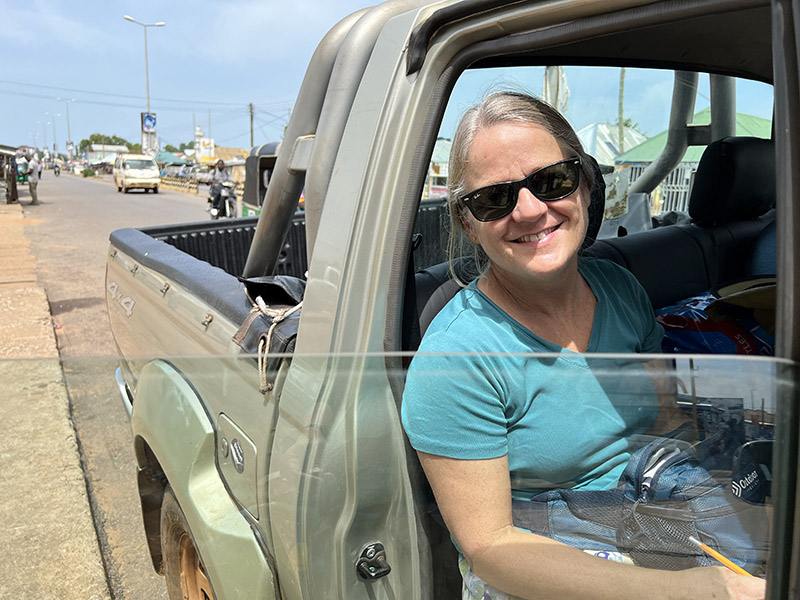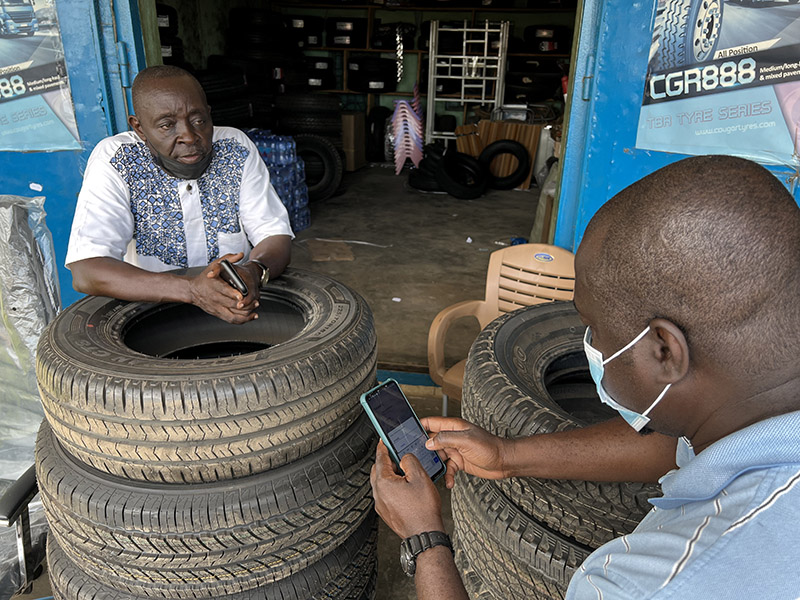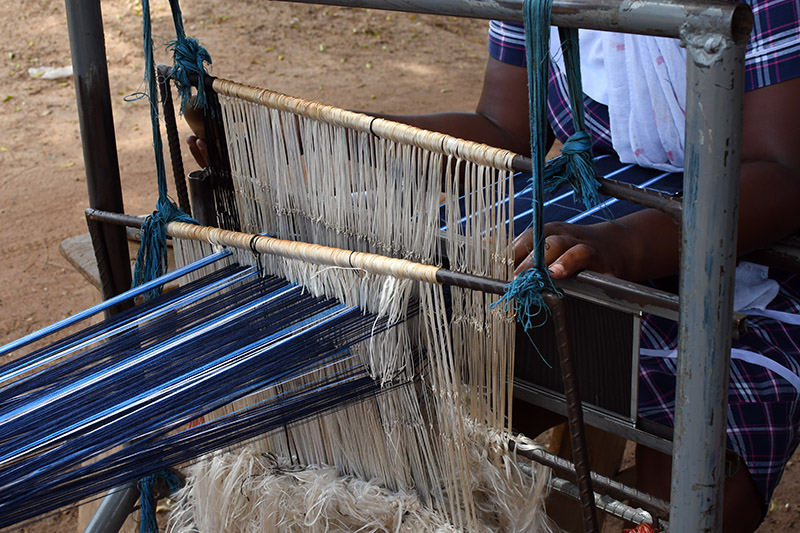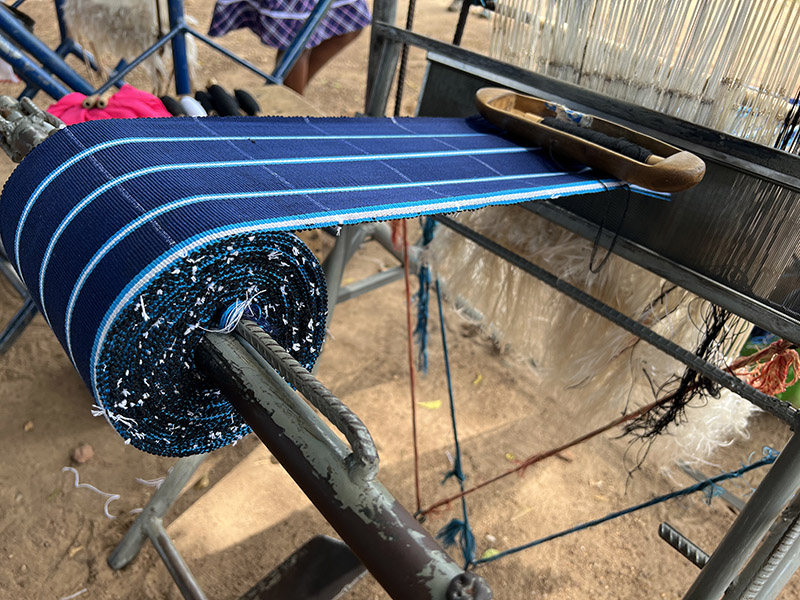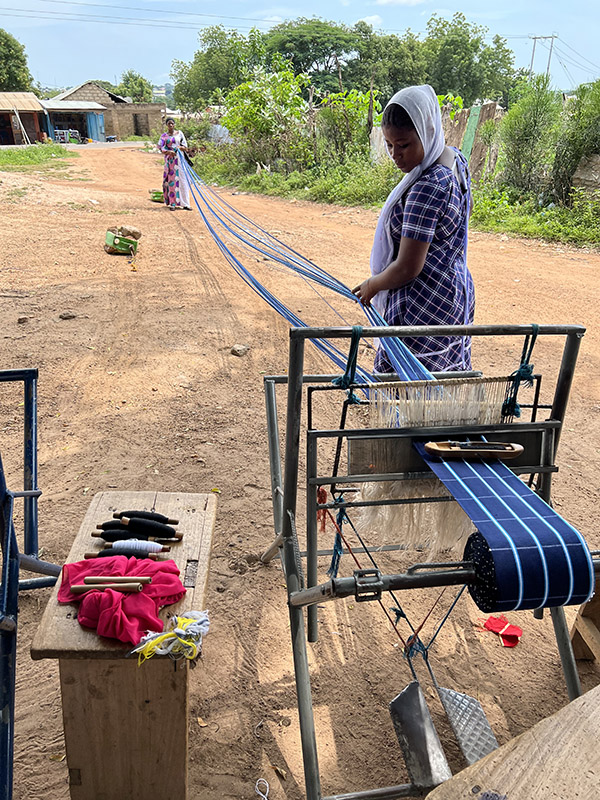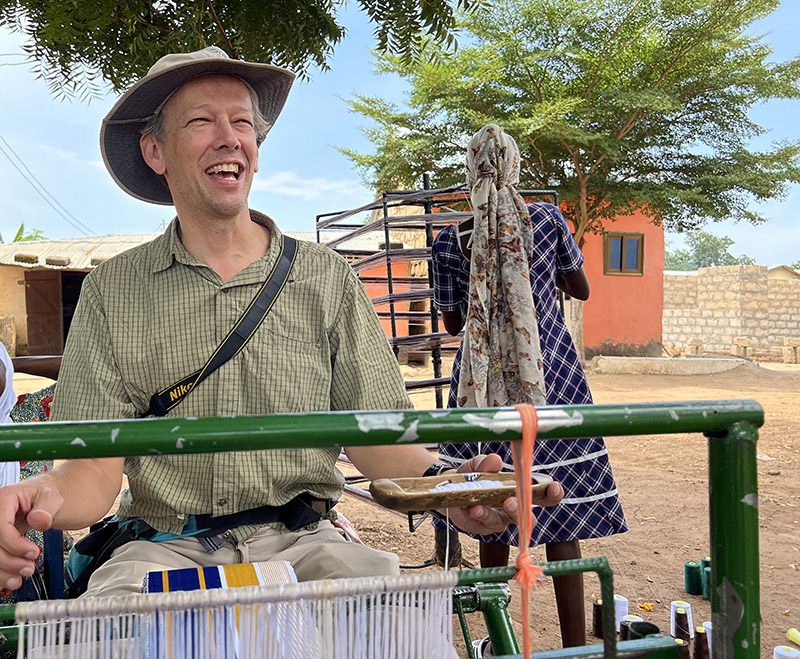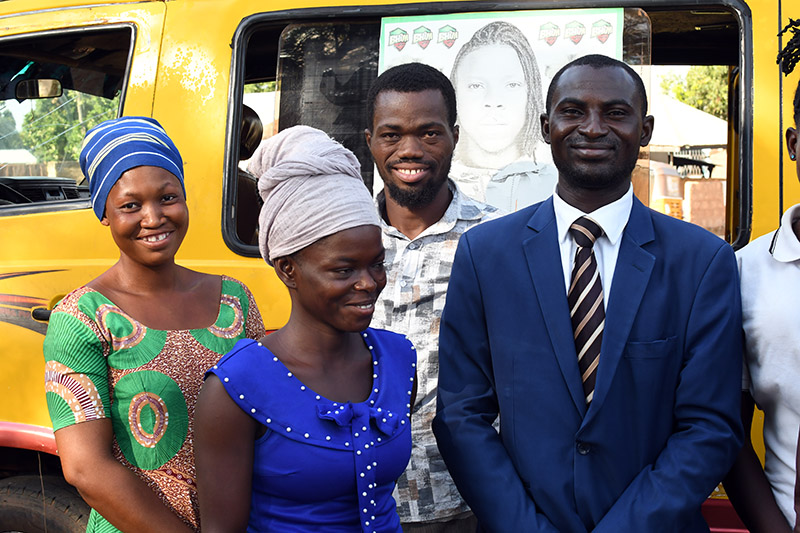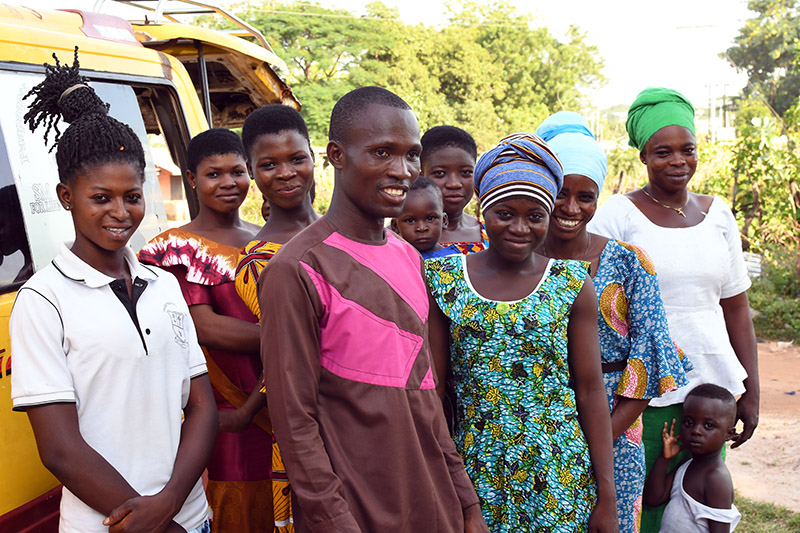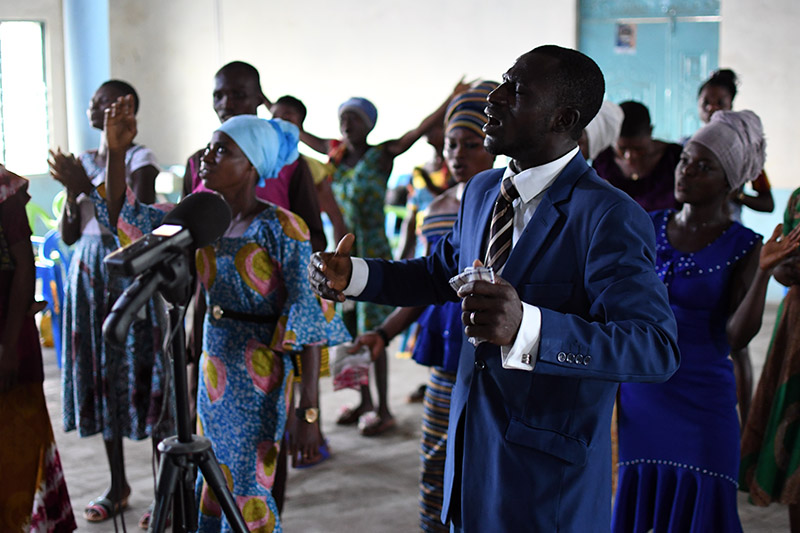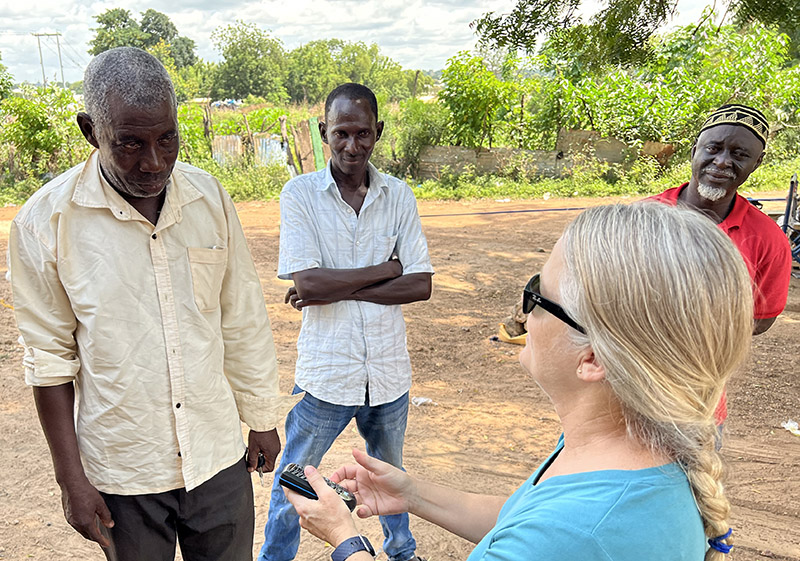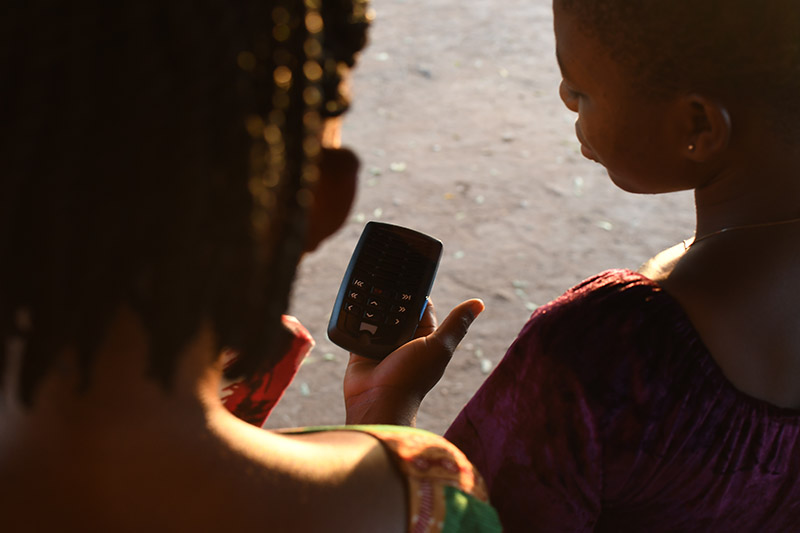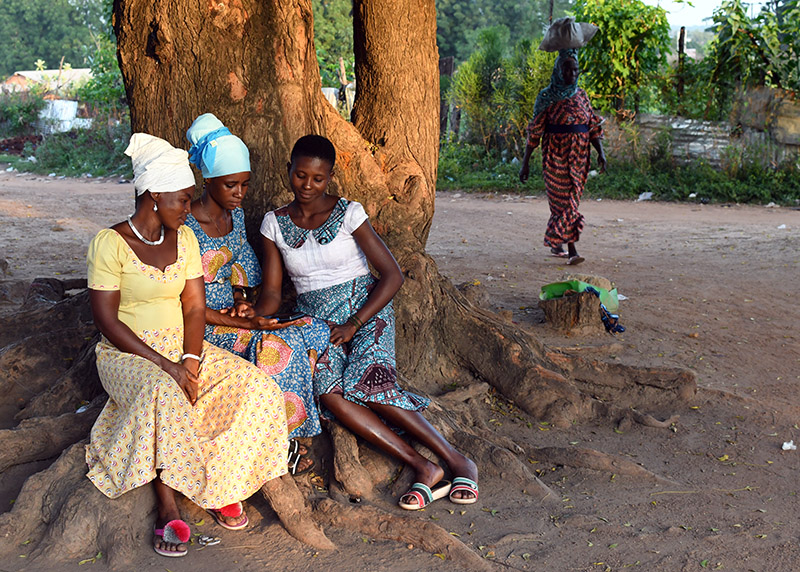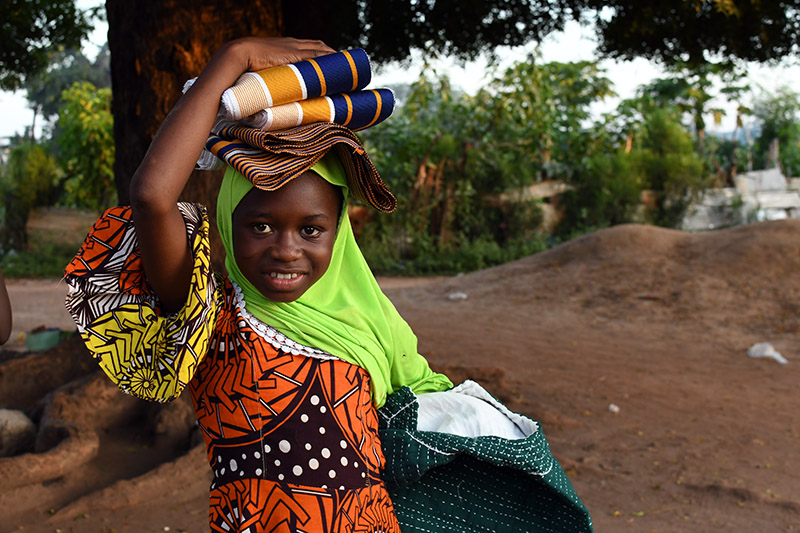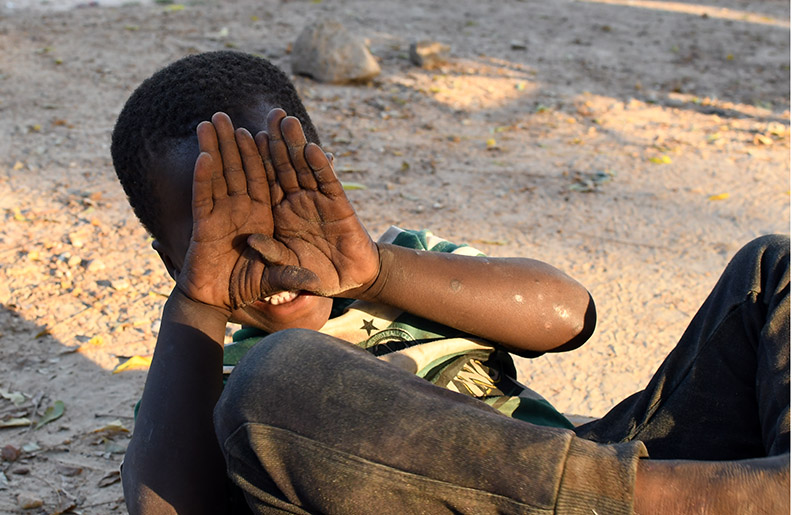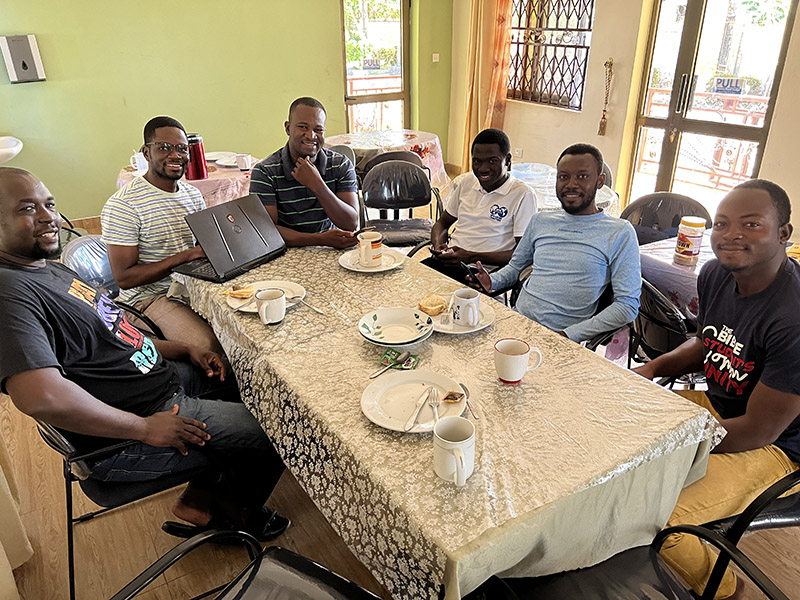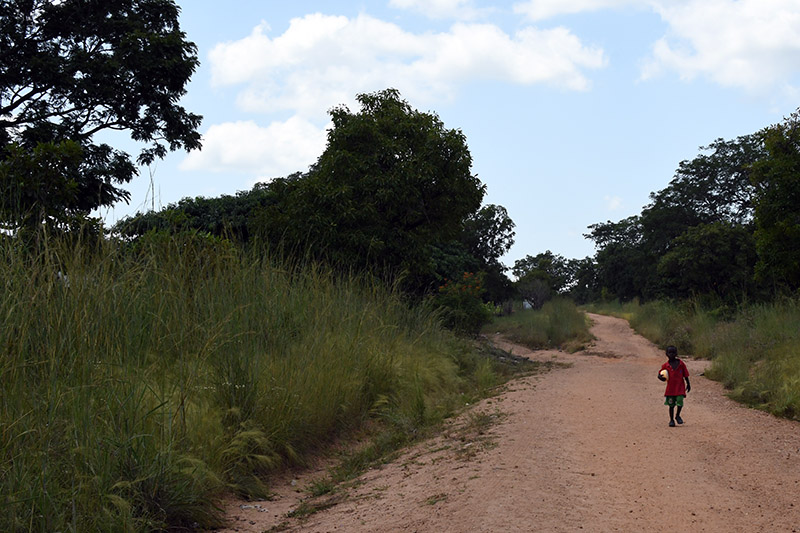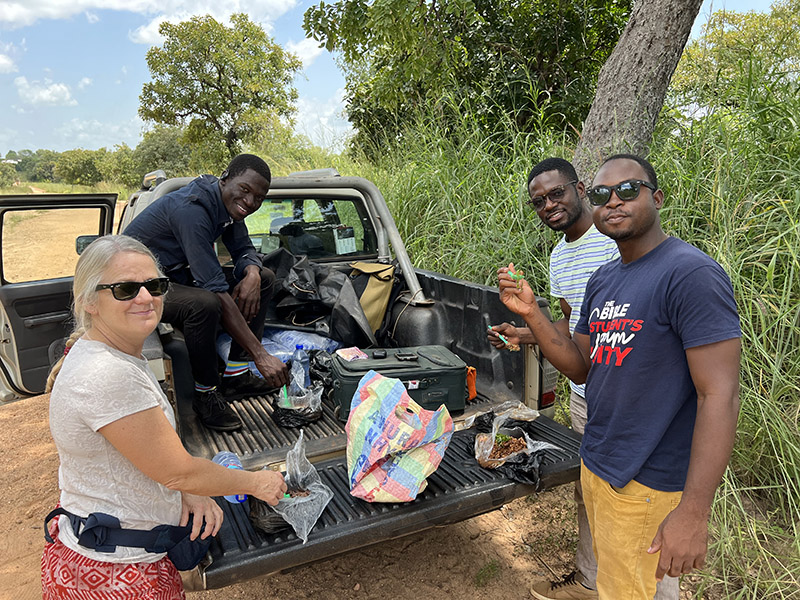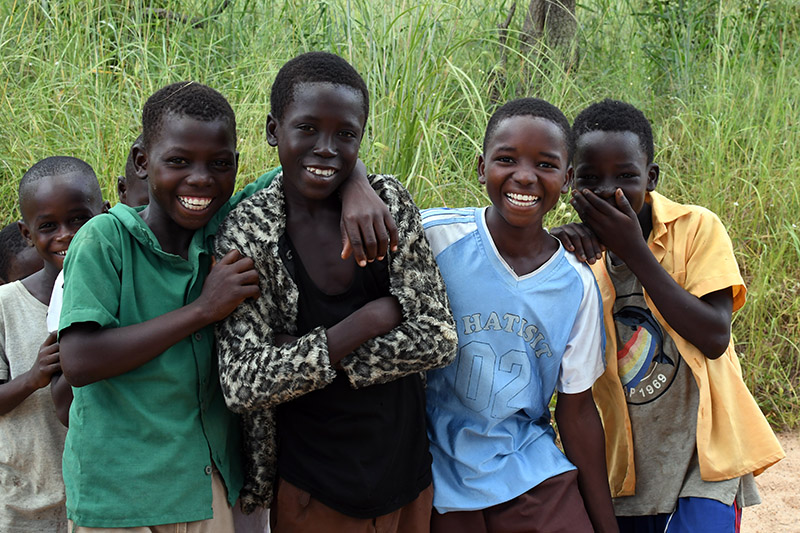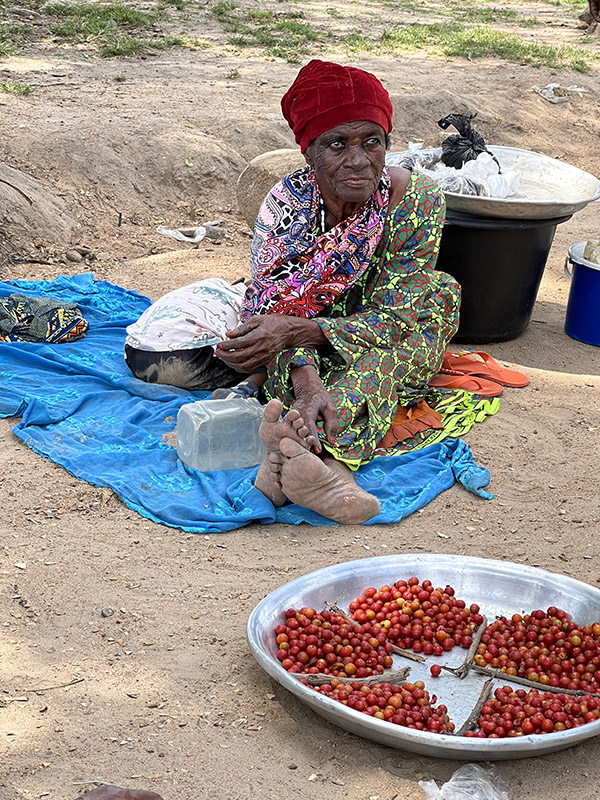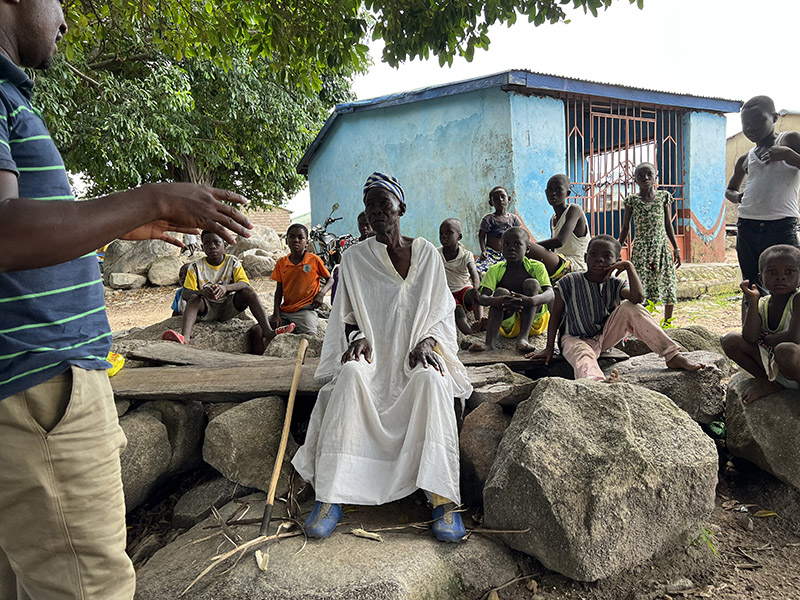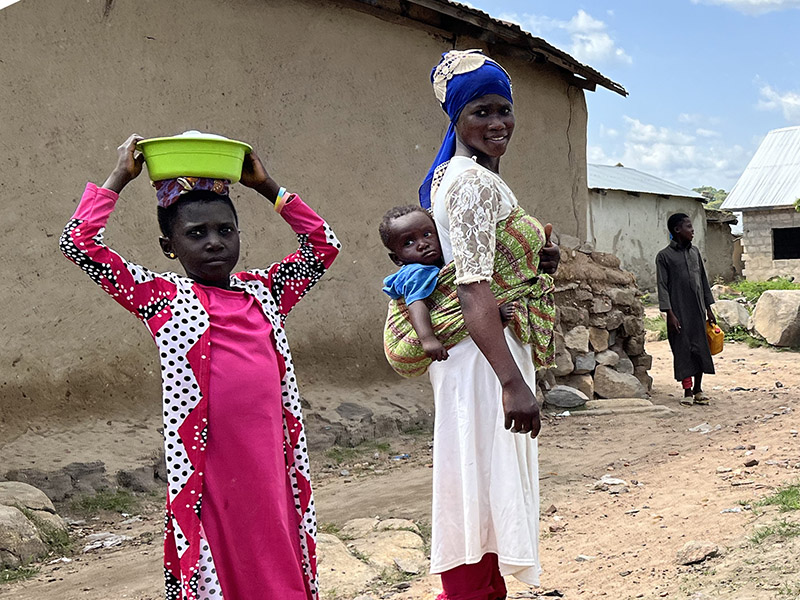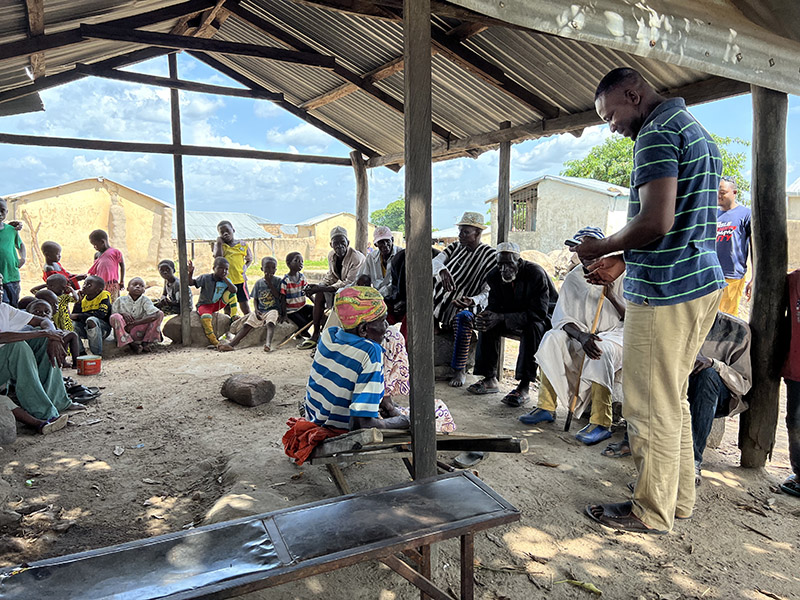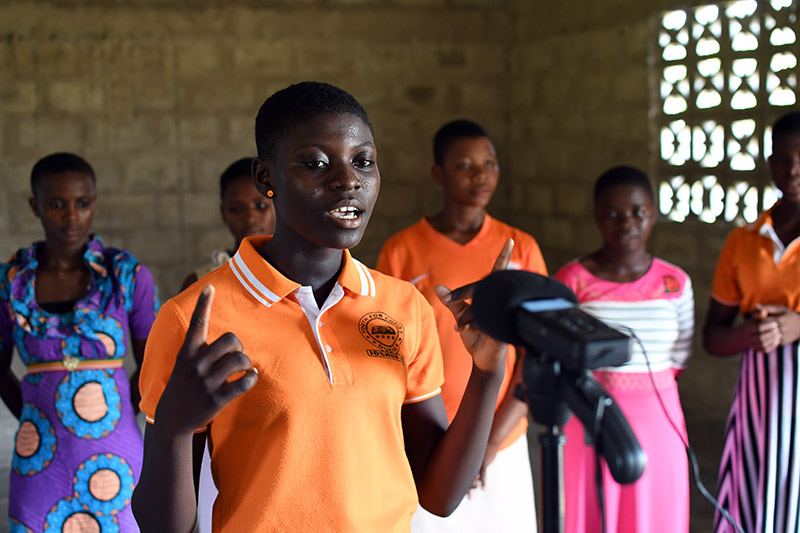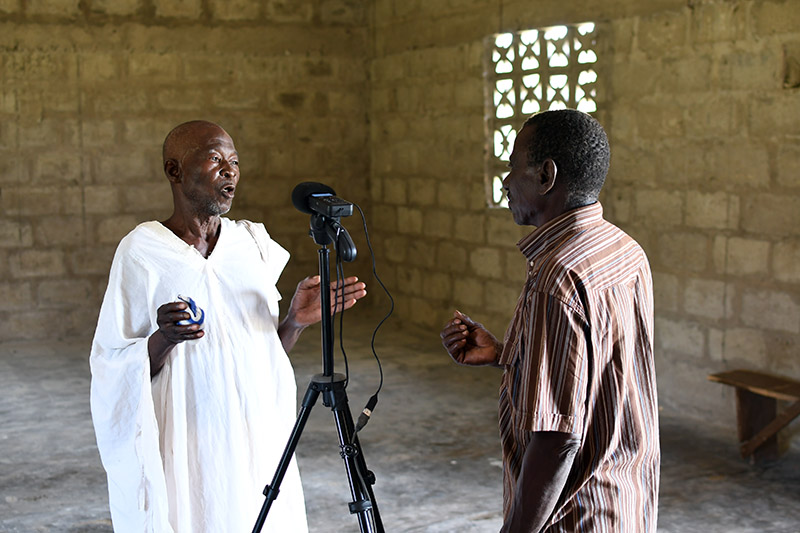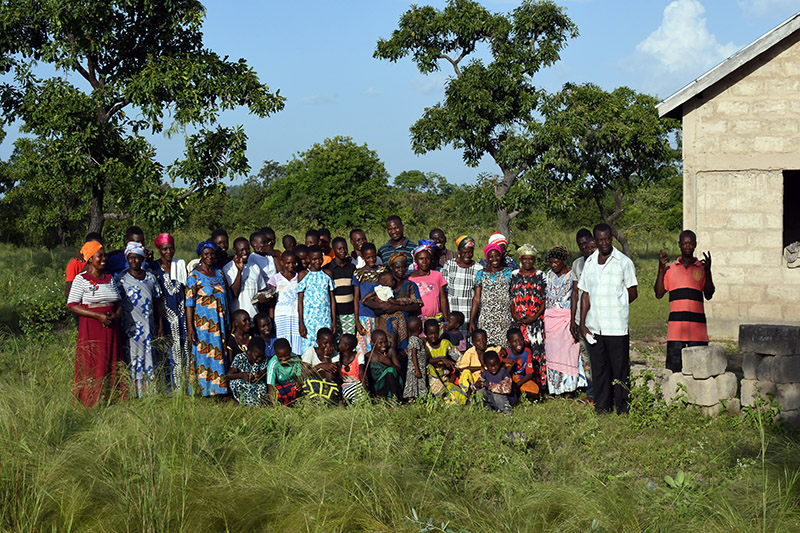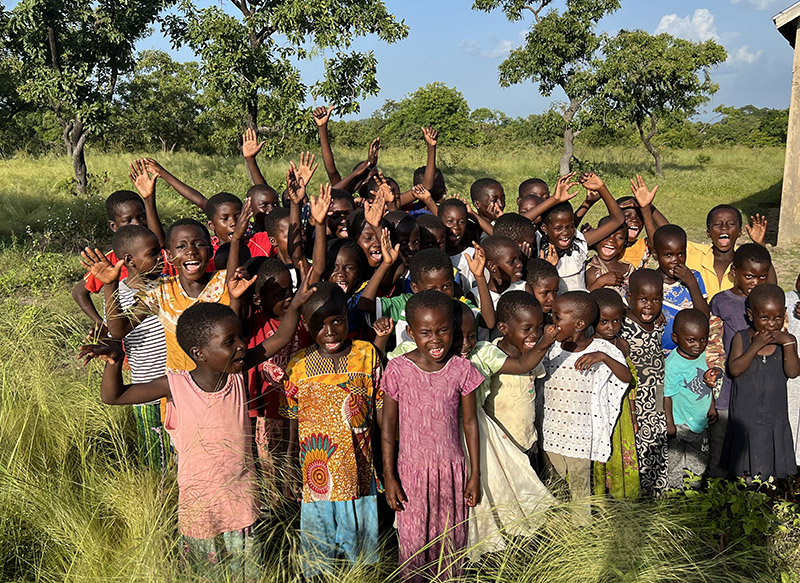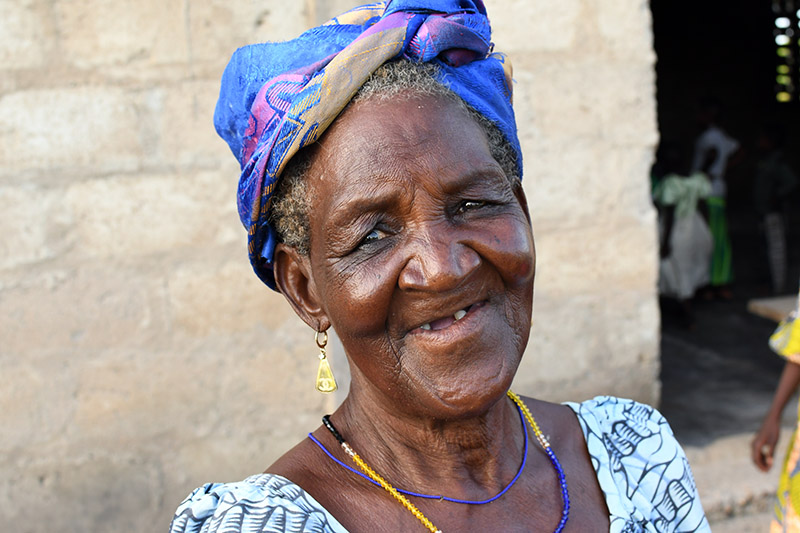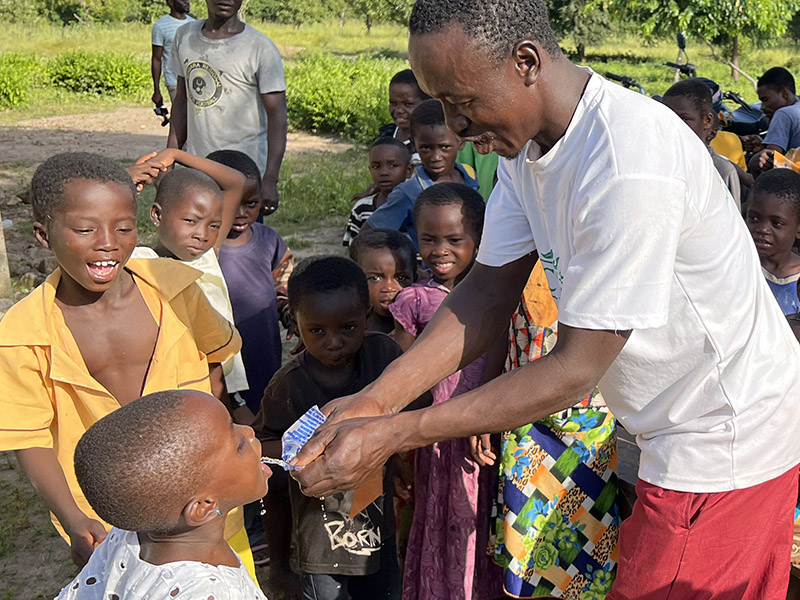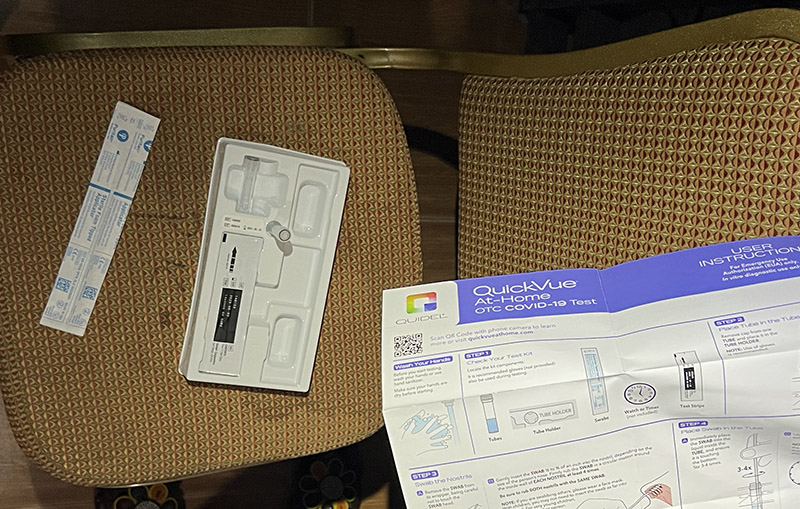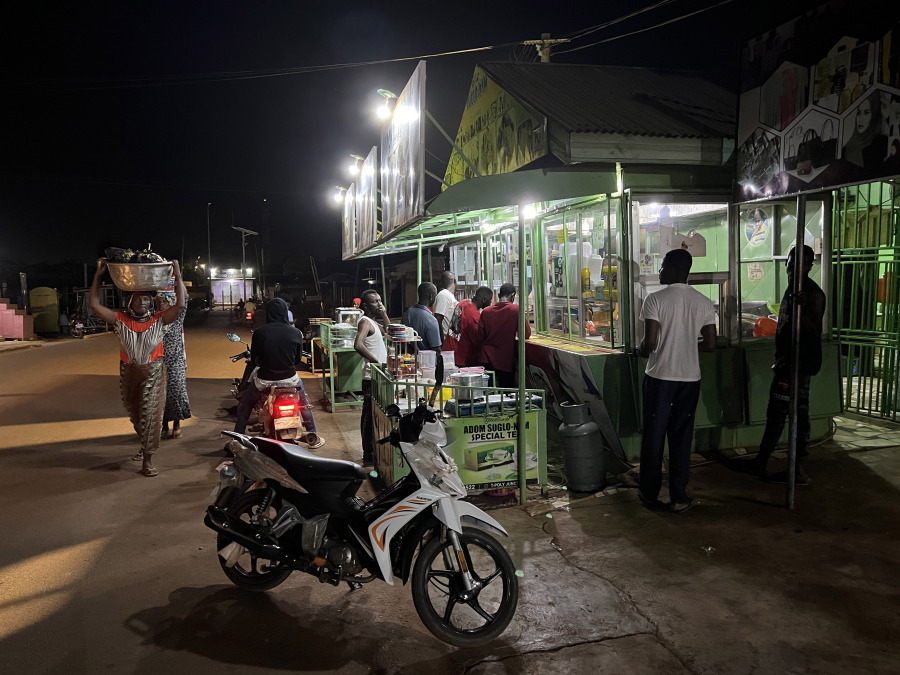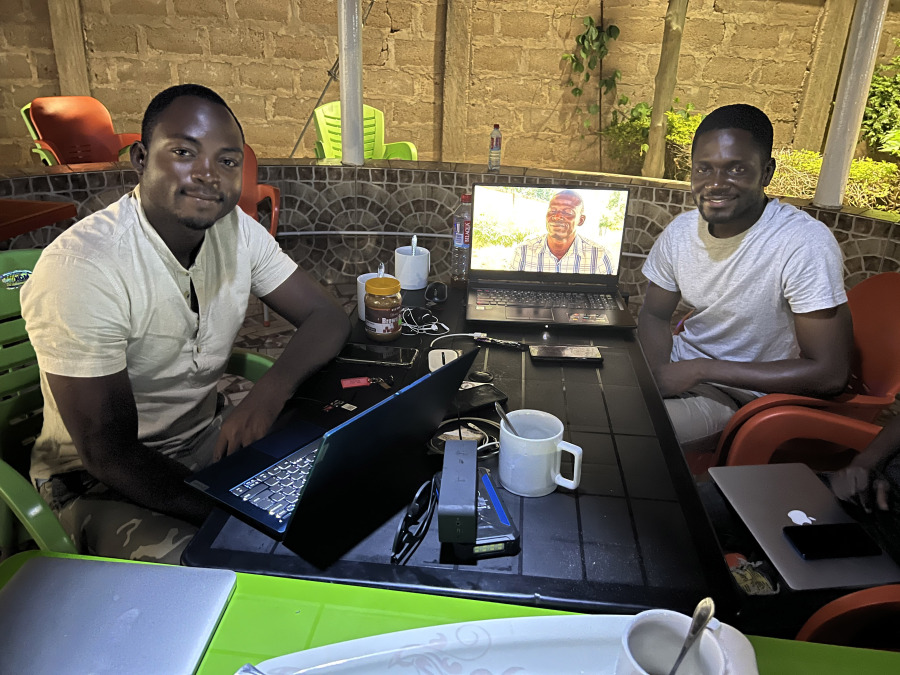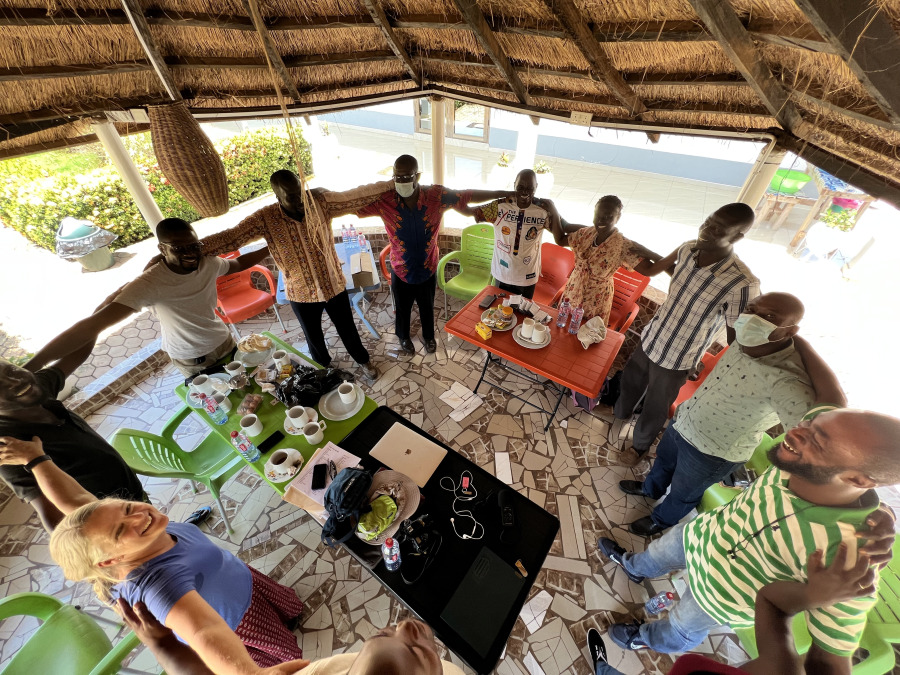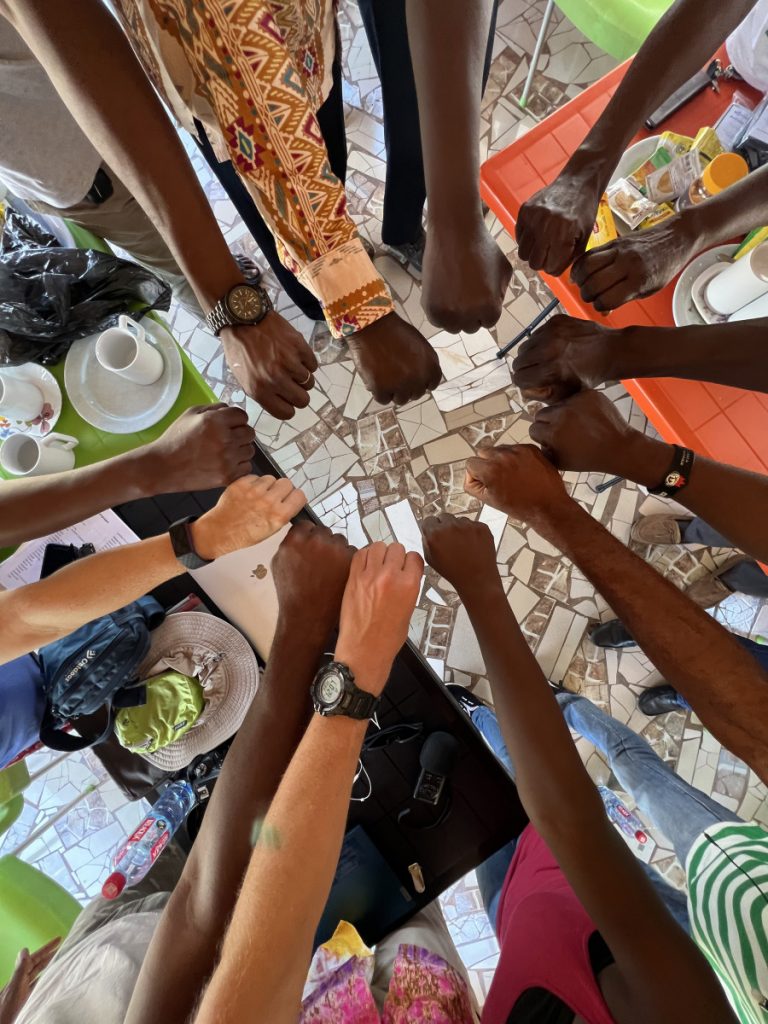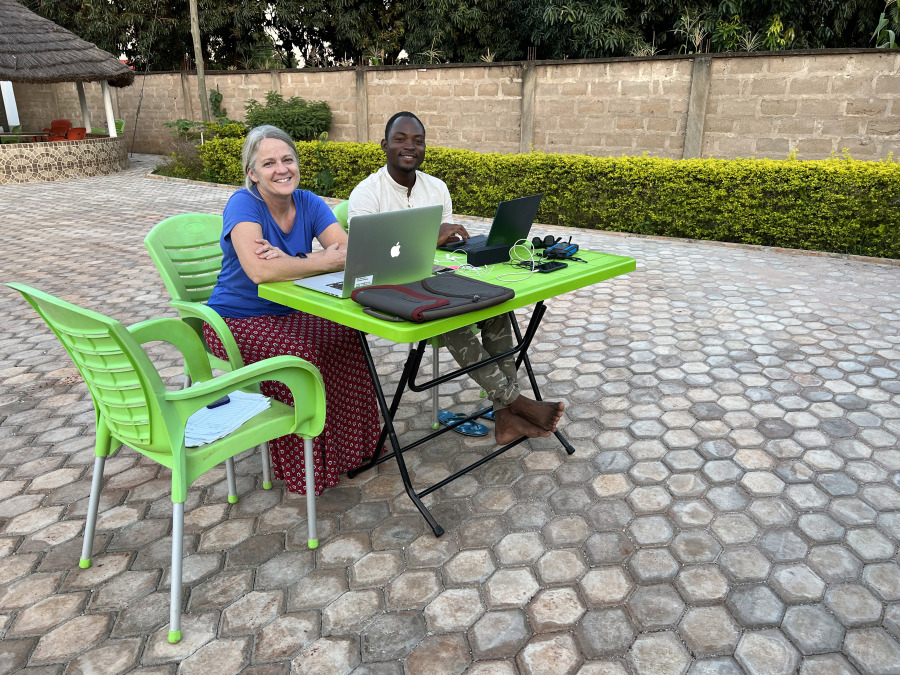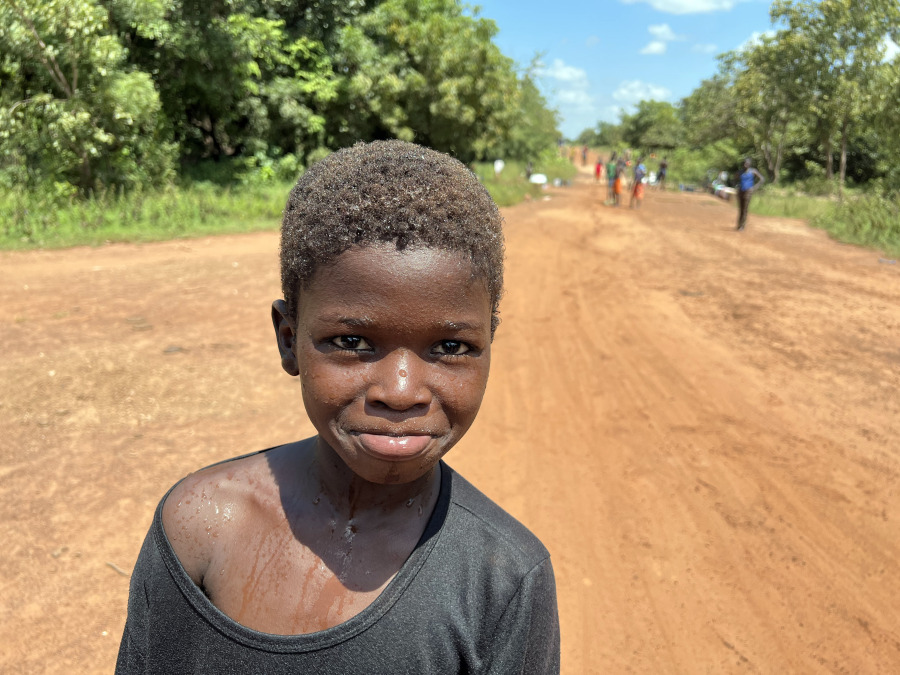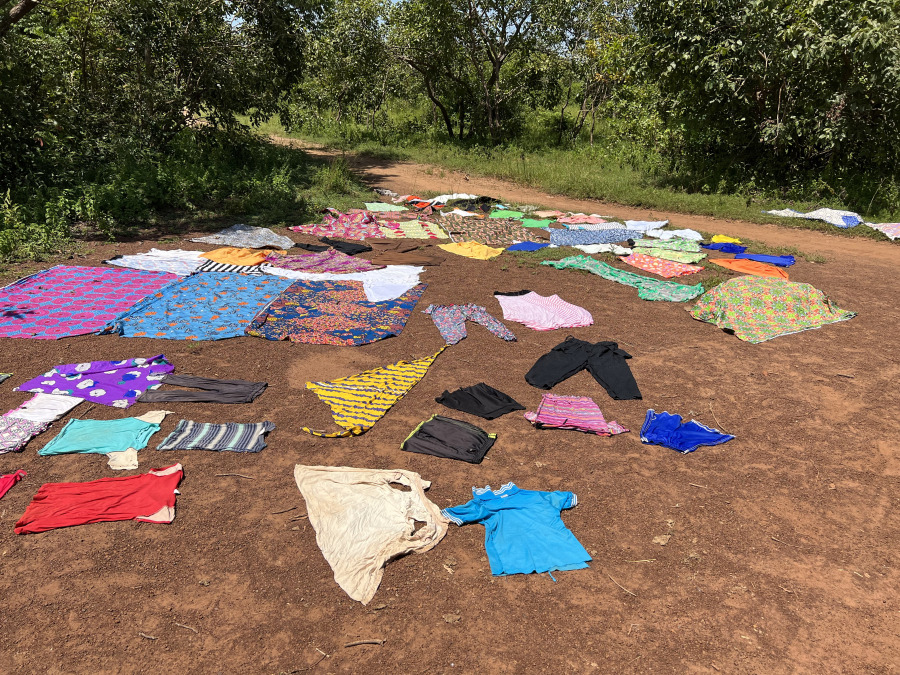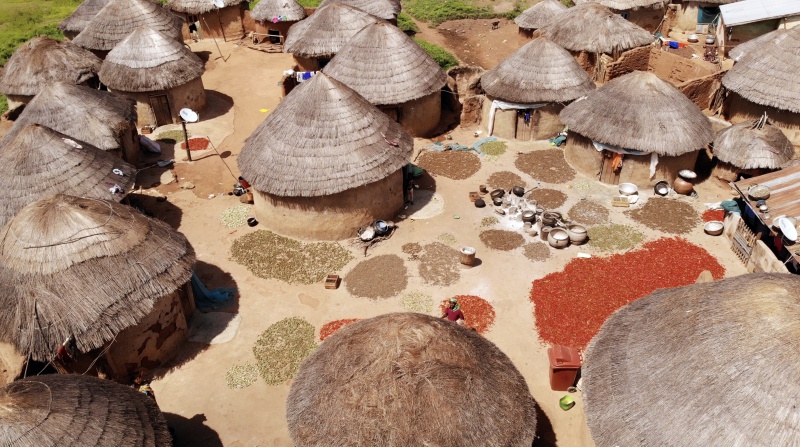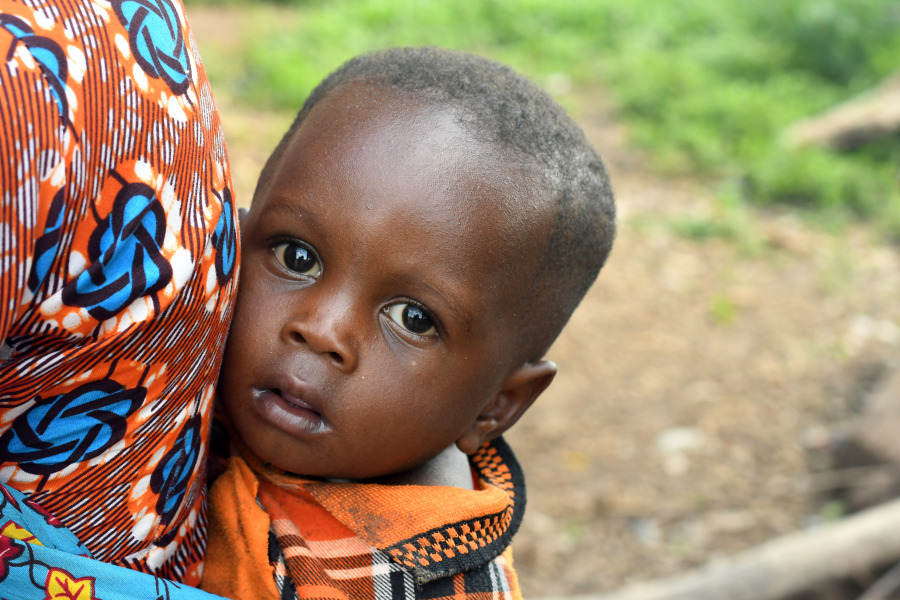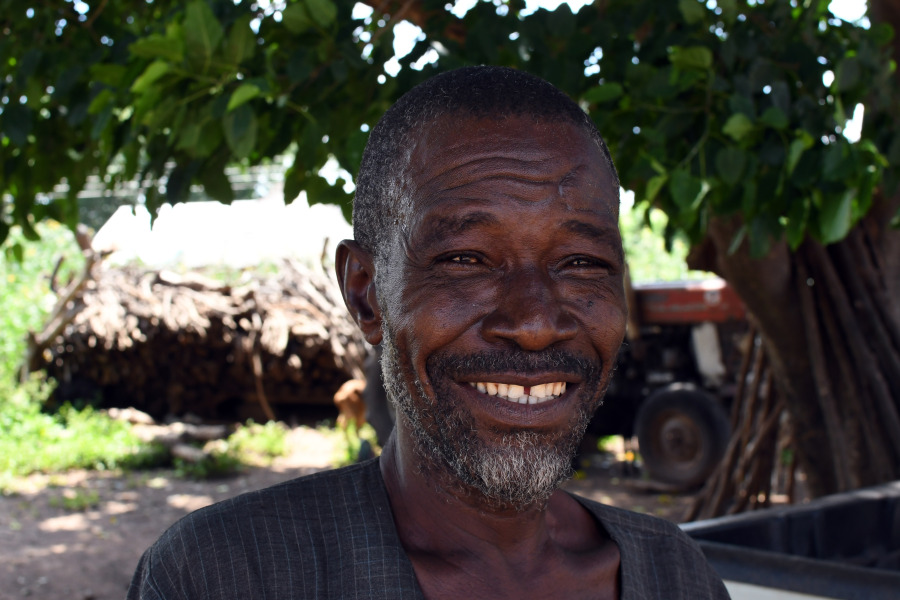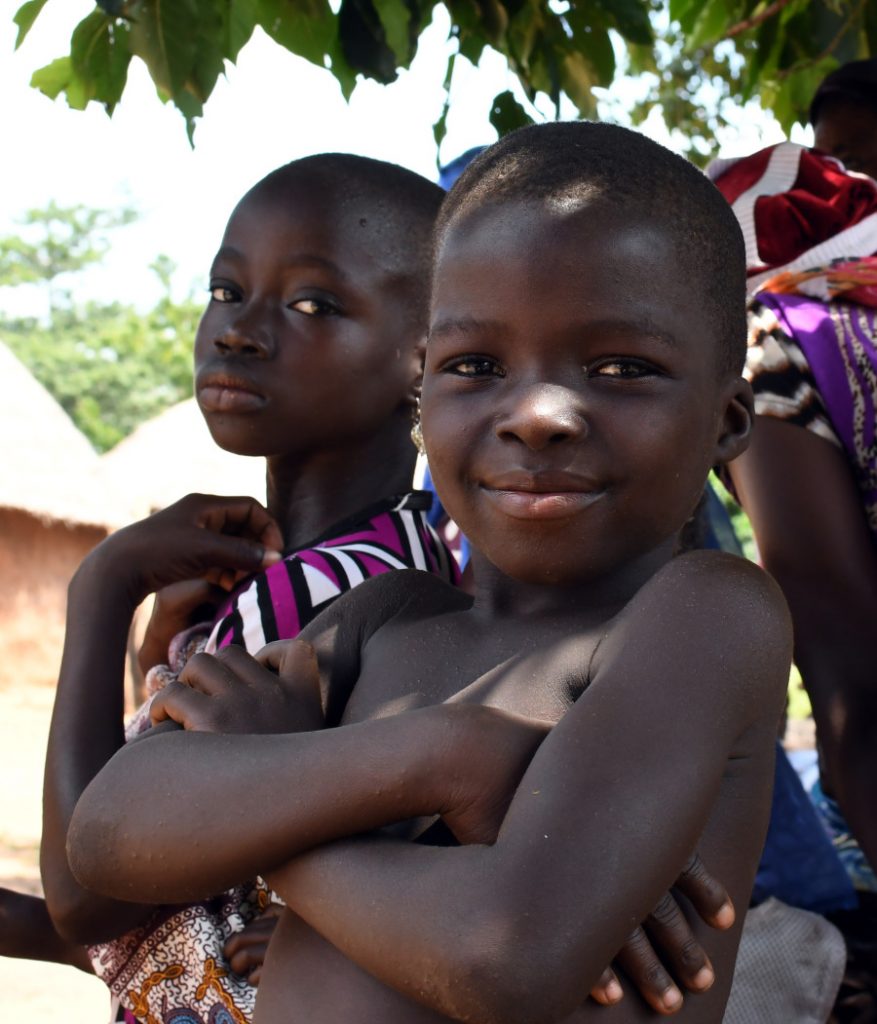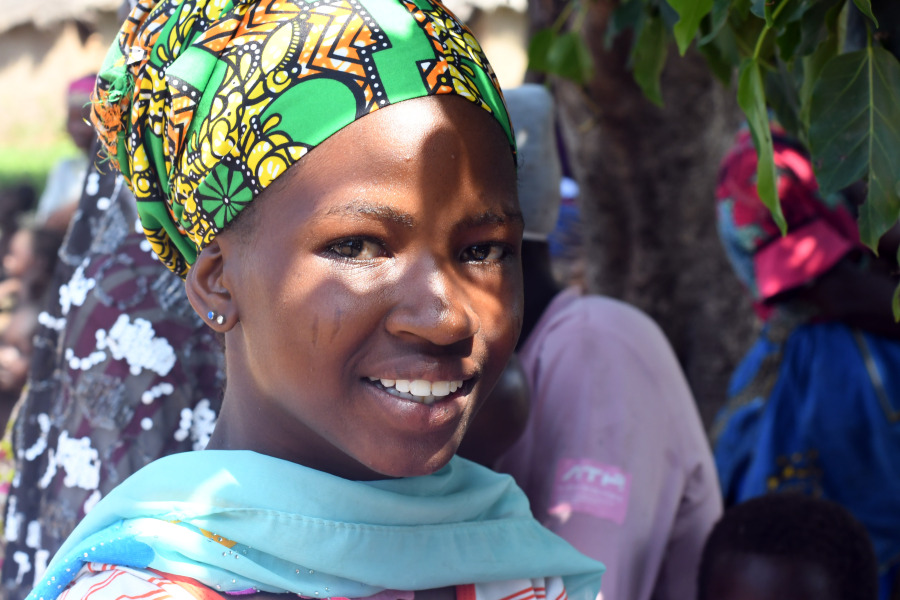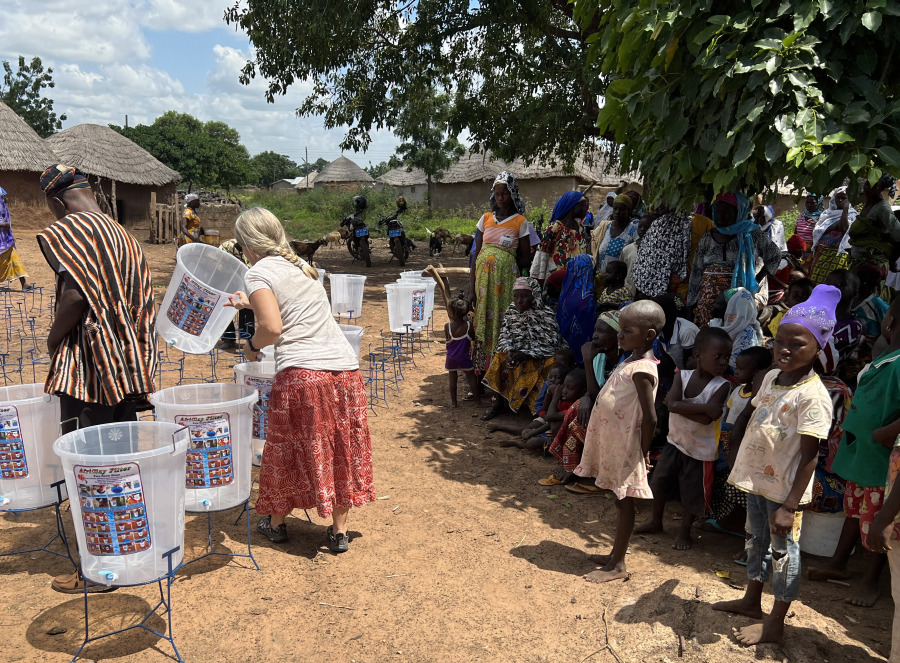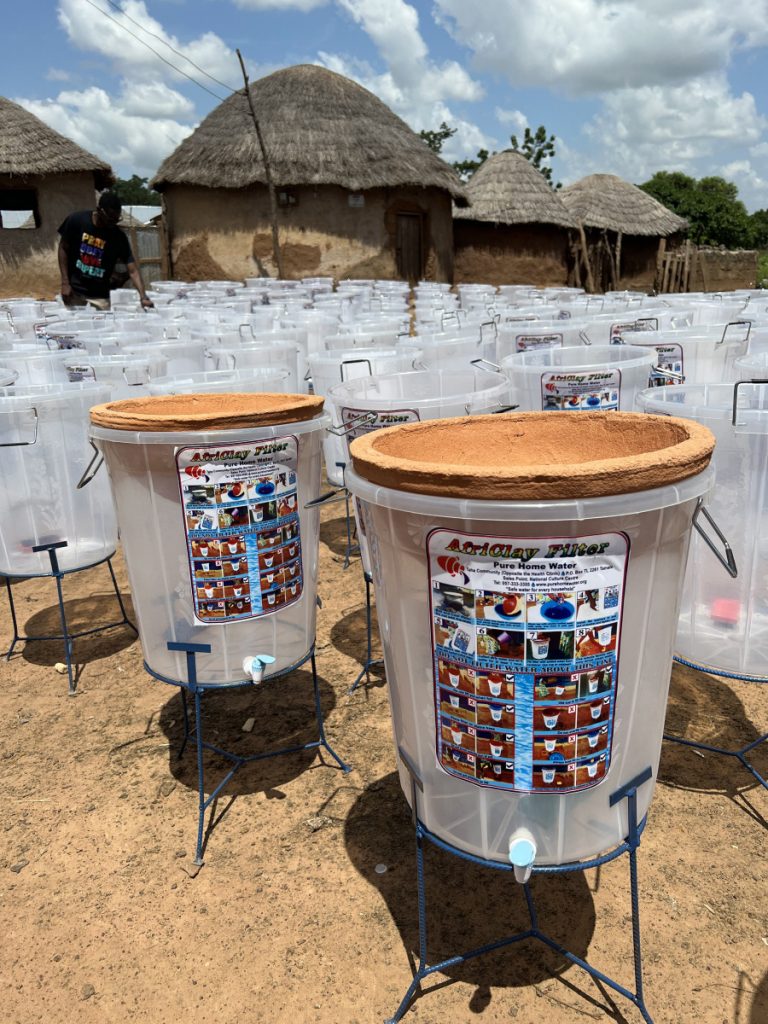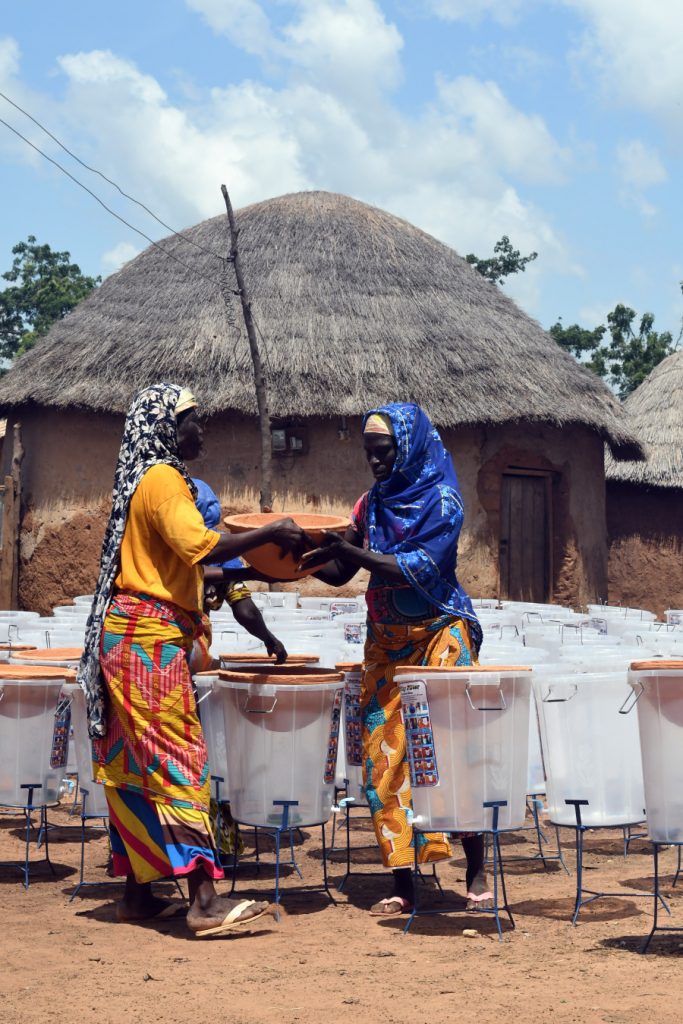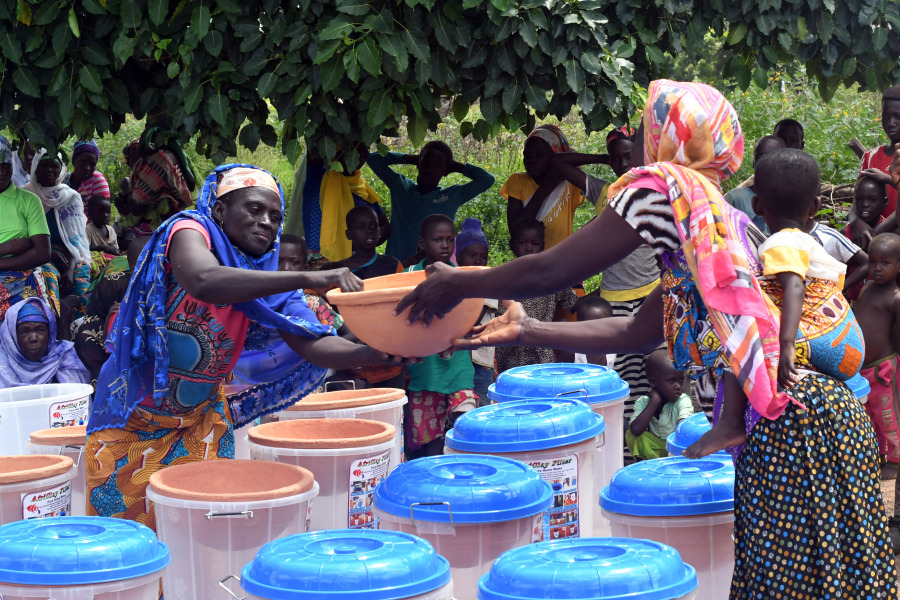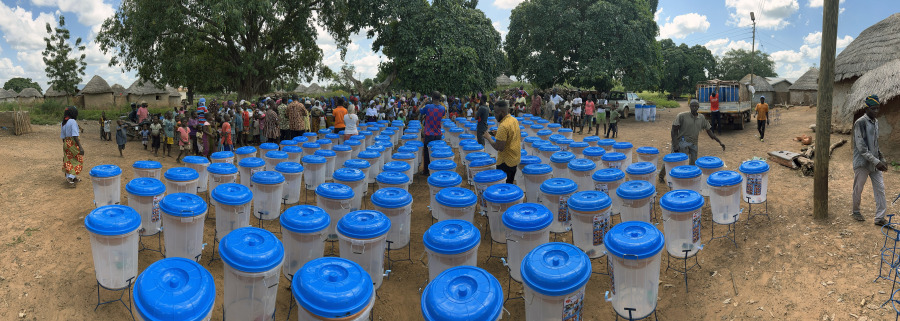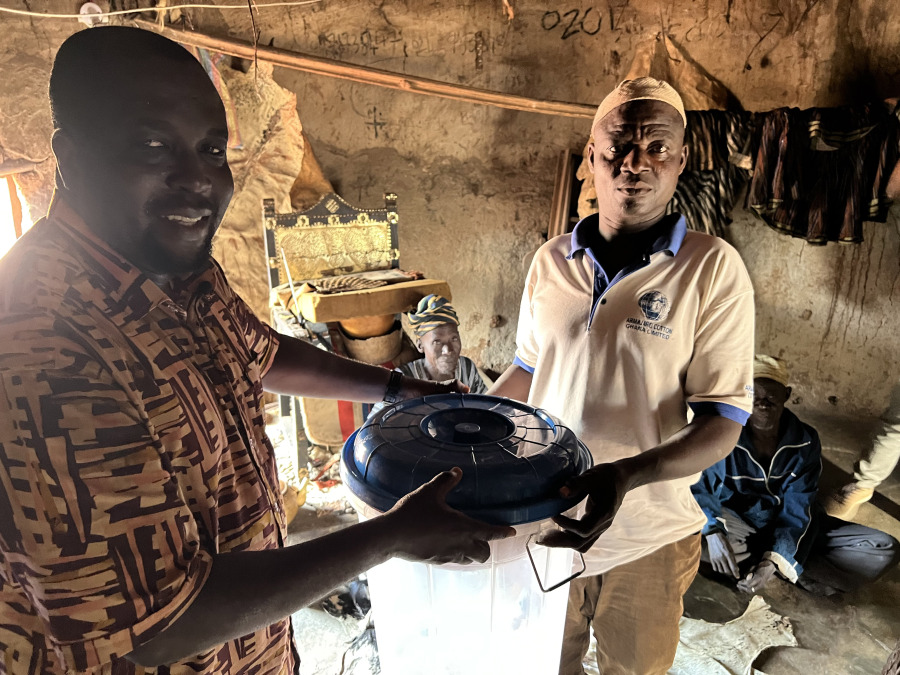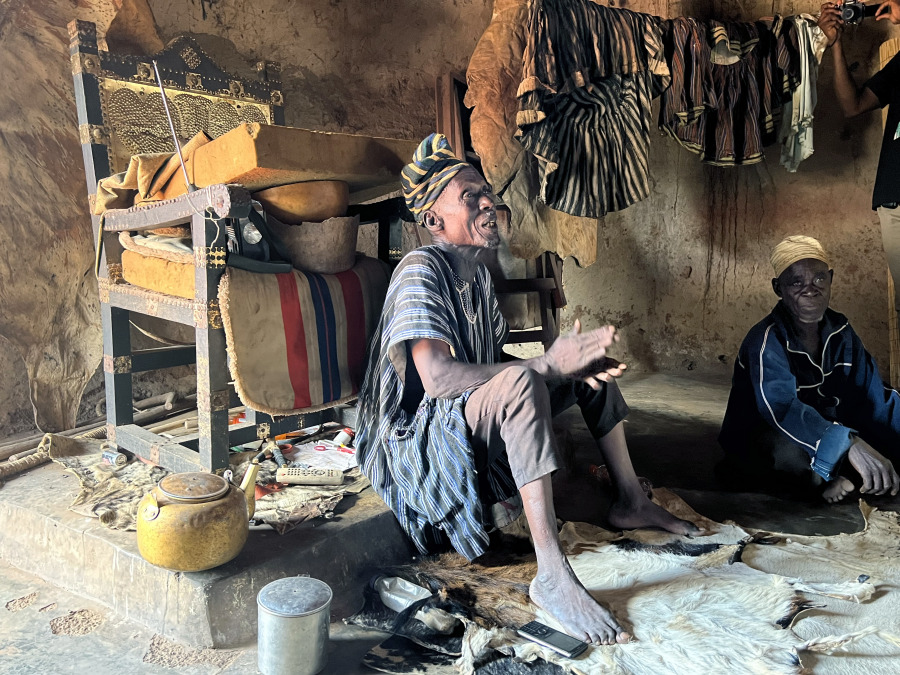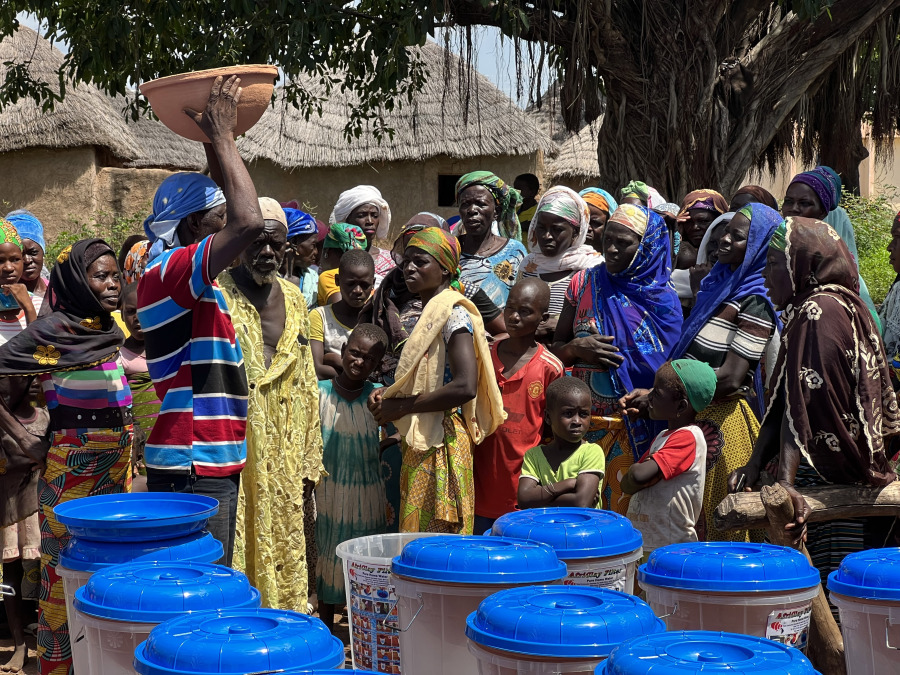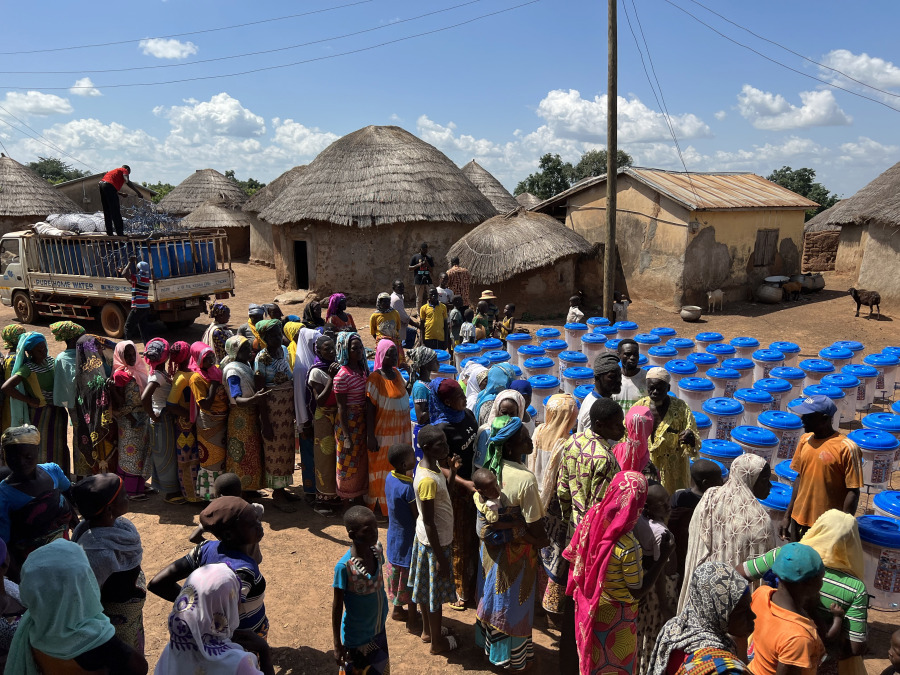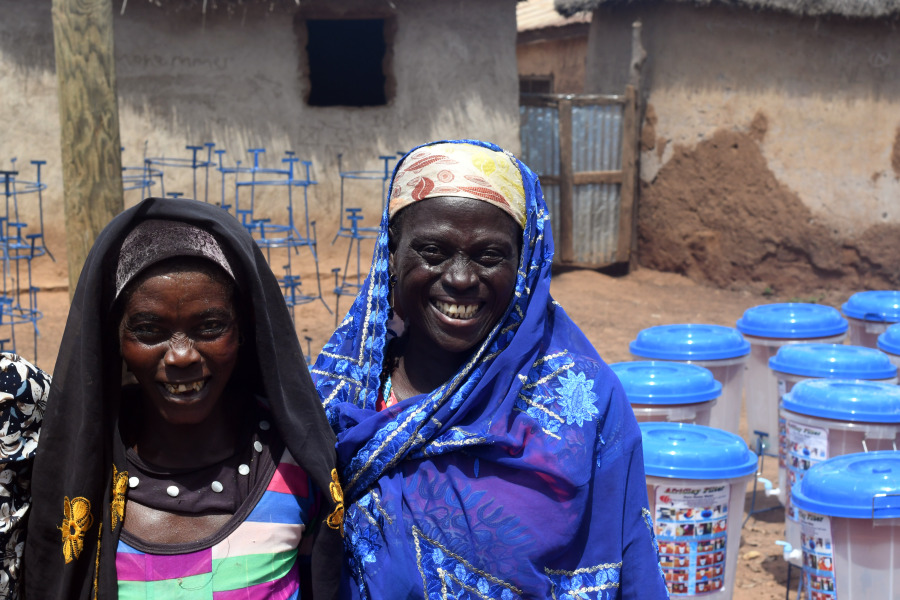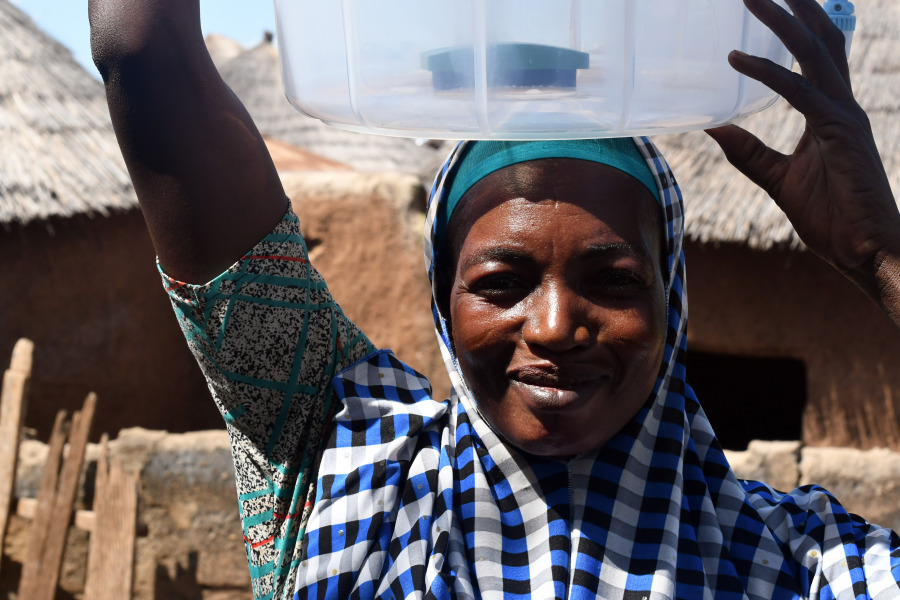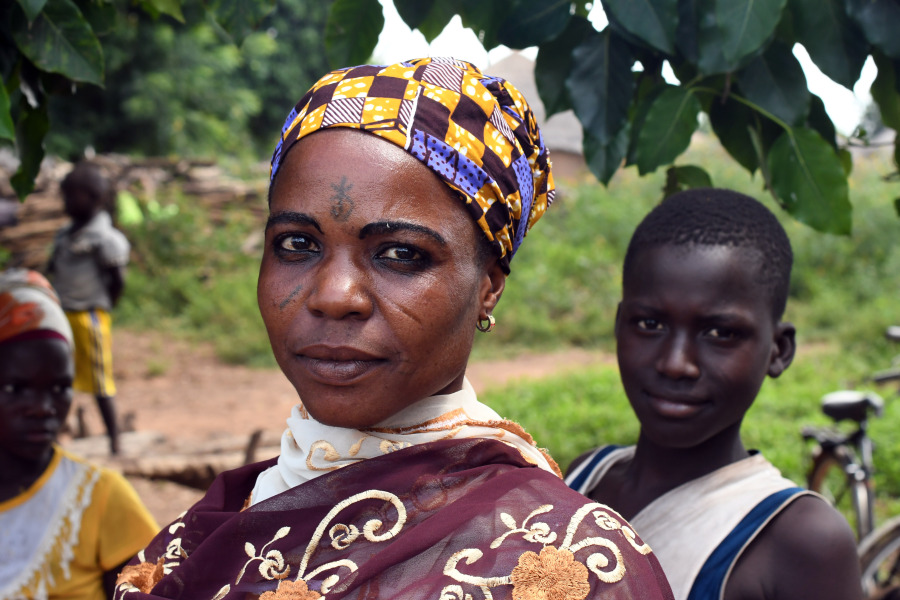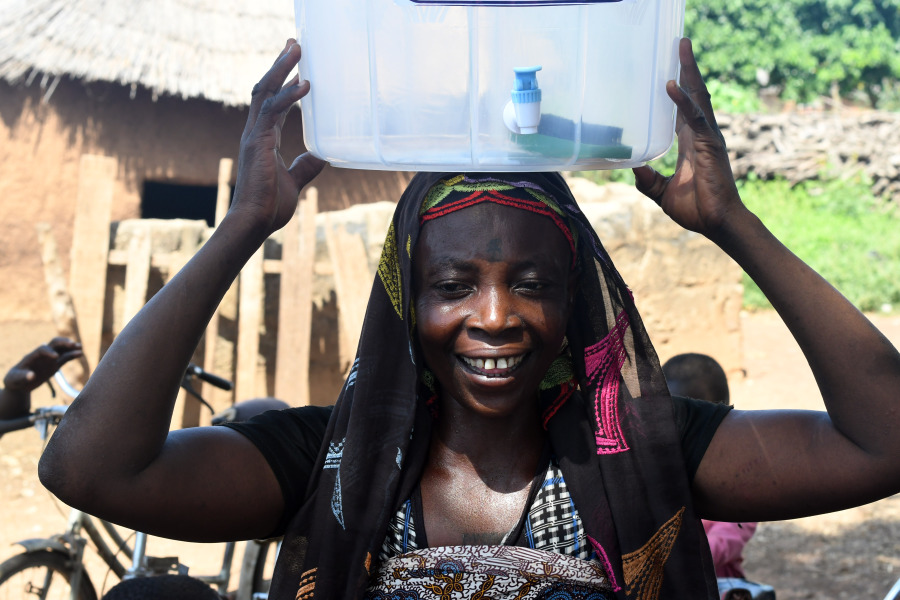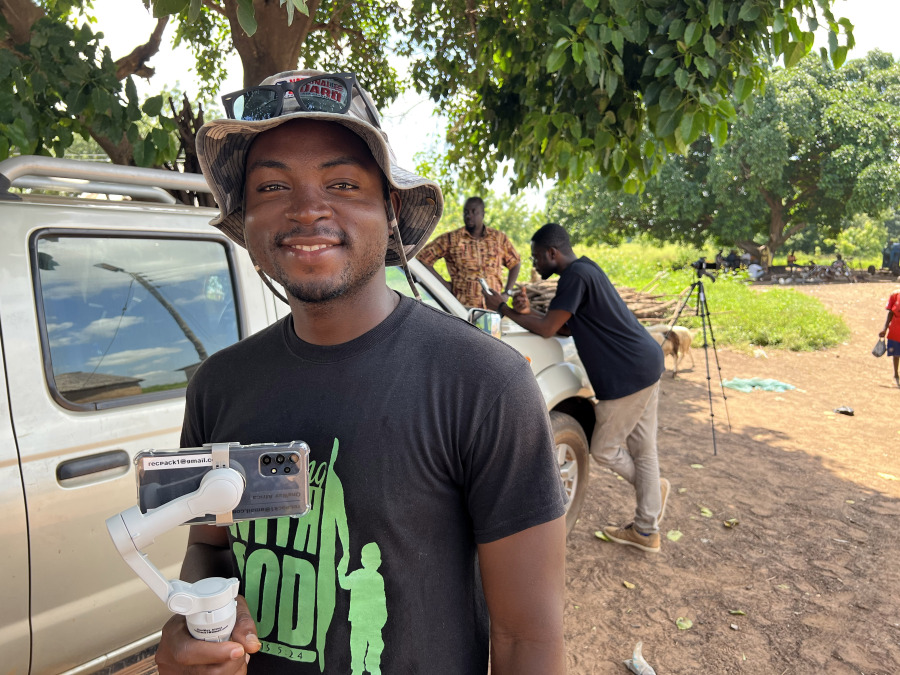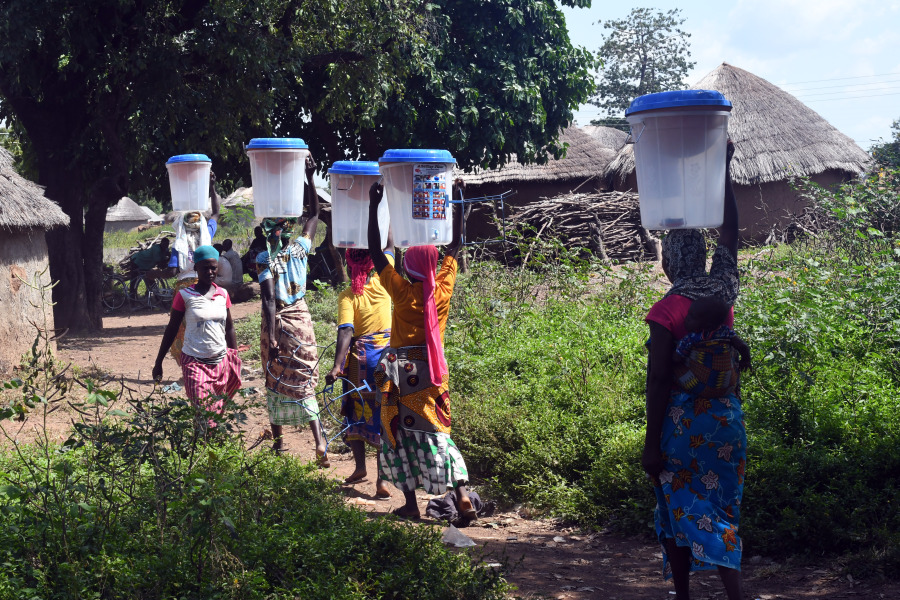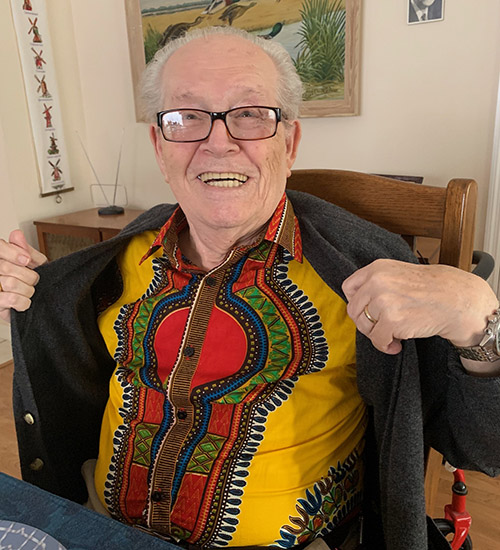Stepping out of the room early in the morning was like that first bite of a crisp, tart apple. The perfection is in the simplicity. The rich golden colors of the early morning and the coolness carried forward from the evening make dawn the most glorious part of the day. My jet lag is waning, and I wish I had the time to fall asleep at 9:00pm each night so I could rise at 4:00 and take in the simplicity of the African mornings.
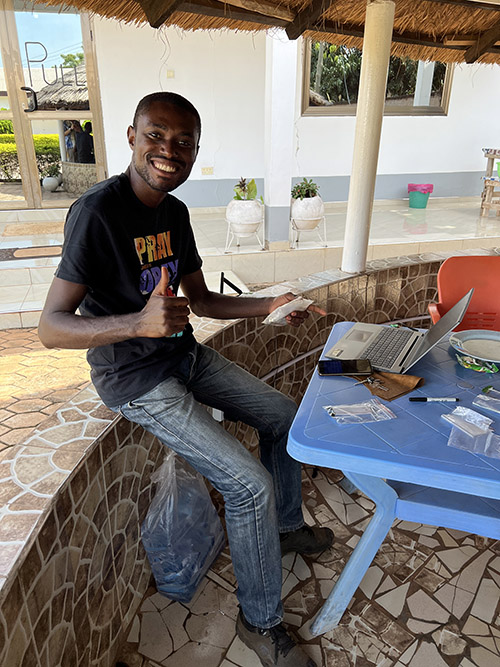
The night before, we had commissioned Cyrus, the newest motorcycle missionary to join the team. He replaces Joshua, who is coming off the field for a new post. There are six riders now, each with the tools to minister to even the most remote villages. The newer motobikes are “jungle” models, designed with greater wheel clearance and ruggedness. Our friend Afrifa, who has been on the field about 5 years, is now the leader of the riders. We gave him the new Lumo gospel films for Komba, Wali, Dagbani, Mampruli, Anufo, and Fulfulde and from his office in the summer hut, he copied them to each of the rider’s waterproof 128GB “pen drives”. Afrifa is gentle and quiet, with the broadest of possible smiles. We hear he has also become a good preacher. Beth and I wish we had more time to spend talking to each of the riders. Their work is arduous and quite dangerous. One of the newer riders was explaining a recent tribal war that just ended. One of the tribes had hired mercenaries from another country, and the local police were overwhelmed, requiring the military to enter the villages to enforce a curfew. There has been peace in that region now, after two chiefs agreed on a settlement, but tension is high, and the famously friendly Ghanaians can be cautious when someone who does not know their mother tongue approaches on remote a motorcycle.
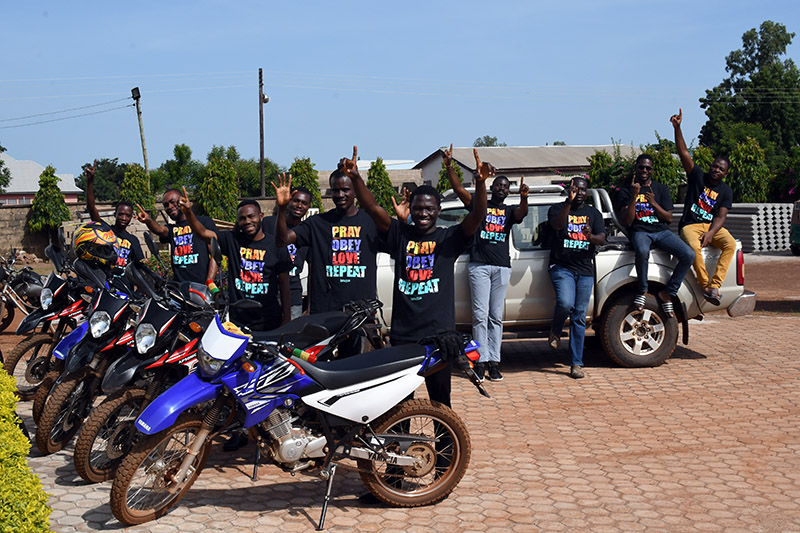

The team gathered for breakfast before we hugged, laughed, prayed, and rode off in different directions.
Malaria and Typhoid really hit Ray hard this year, and he was quite ill for weeks. He is still catching up and trying to mend. He asked me to drive the 6 hours from Tamale to Wa. The diesel Nissan Hardbody is the perfect vehicle for this terrain, and I don’t mind doing the driving so Ray can rest. Those first few minutes sharing the road with an excited hornet swarm of buzzing, honking and swerving motorcycles was like waking up with a triple espresso and frosted cinnamon bun. I weaved through the middle of Tamale and headed out of town. As the traffic slowed, I looked over to see Ray asleep. Either he really trusts my driving, or his attestations to being almost 100% healthy are more hope than reality.
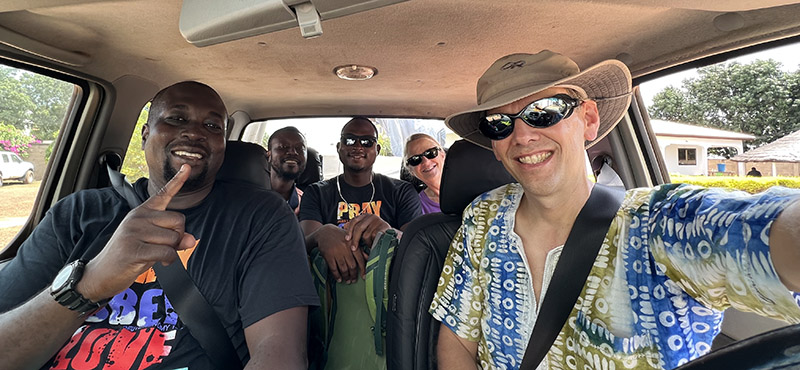
Under normal circumstances, a drive through the remote countryside of Ghana is something I cherish. It is the end of rainy season, and the verdant backcountry and the rich tawny soil make the Ghanaian bush feel so alive. However, Beth and I have been a bit worried about the continued healing of her eye. She has not detected any issues at all, and we thank everyone for their prayers, but we remember that roads in Ghana can be quite rough. Technically, she is to avoid bumps and jars. Memories of hitting potholes hidden by a shadow at 60mph cause me to be on edge. I drive by continually scanning the road, trying to read the colors and textures for clues to guiding us as we zigzag across both lanes at 60mph in search of the smooth path. The truck is heavily loaded with 5 people and luggage, and at some point while coming out of small dip we hear a strange rubbing sound. As it grows, we realize that we have a flat tire. Ugh.


This is not our first flat in Ghana, but the weight of the vehicle and position of the road call for some improvisation. Nevertheless, David and Joshua show their roadside skills and within minutes the spare tire is ready and we continue on toward Wa.

In Wa, we spill the contents of the truck onto the ground and take the gear into each of our rooms. Beth and I have four suitcases and three backpacks of gear, from laptops and recording equipment to cameras and tools. It feels like everyone should eat a hearty dinner of jollof rice and relax in their rooms, but we have an appointment to record a choir. Our first recording is always a bit more complex, as we plug together equipment, find cables, and adjust microphone gain.
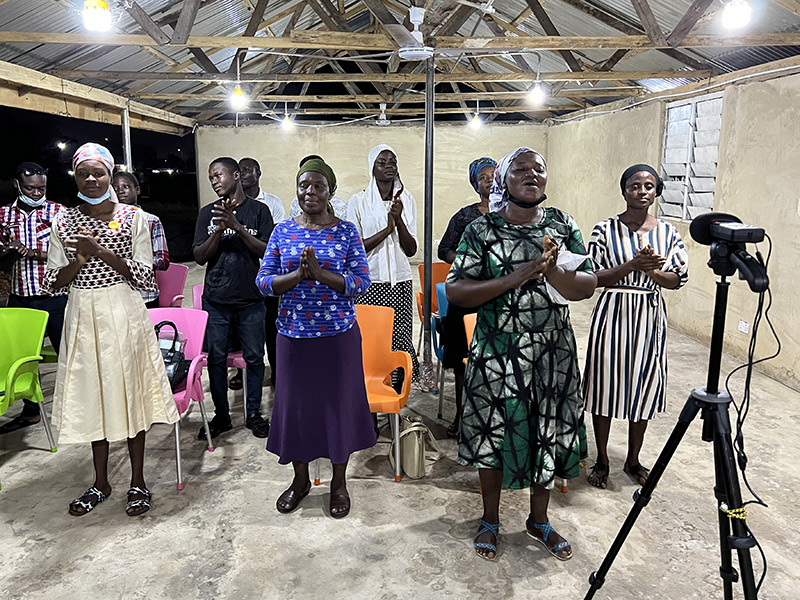
While adjusting the tripod holding the microphone, we lift it up to tweak one of the legs. The ugly sound of a metallic crash rang out. We had raised the microphone up, directly into the ceiling fan that was only about 2 feet above my head. The microphone looks like you might expect it to when you toss a microphone into a spinning metal fan. It was our best microphone, and it appears pretty destroyed. My heart sinks, and for a moment I think about what would have happened if I had raised my hand up above my head instead. I felt defeated. Sweat was dripping down onto my hands and laptop as I paused to take it all in.

Fortunately, we have learned that critical components always need a backup, and even a double backup. I pulled a spare microphone from one of the other backpacks and after several minutes, was watching the audio amplitude display on my laptop throb. My salty, sweaty, discouraged, and exhausted frame was revived as the choir leader stepped forward and pierced the night with a bold song. Within moments the choir joined in and begins to clap. Is there a more beautiful sound?
The choir decided to sing all of their pieces together, into one long song. The choir leader seamlessly transitioned from one piece to the next. For fifteen or twenty minutes we enjoyed the concert. I watched Beth just grin and occasionally close her eyes. I know this is the part she loves the most. She grew up in a musically talented family, and appreciates the simple rich sounds of an a cappella choir singing praises to God.
We topped the spectacular evening by handing out one of our dum-dum lollipops to all the choir members. Yes, a small thank you, but everyone likes a treat.
Back in the hotel room I go work attempting to fix the microphone. I learned a lot from my dad about how to disassemble and repair electronics, and at first, I was a bit giddy with confidence that I could fix it. It looked like the metal screen had taken the impact. But once disassembled, I found that the central portion of the actual microphone element was bent. Spares are good.
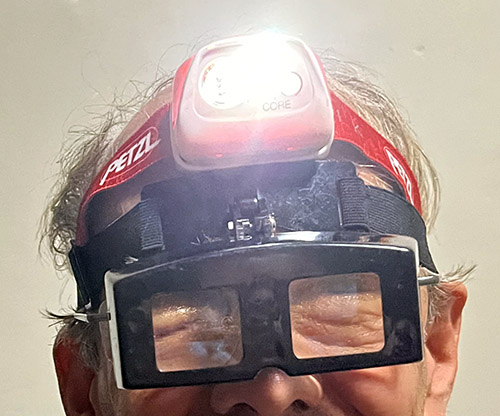

Tonight’s blog post was written using my second pair of reading glasses. I put my spare pair into service after hefting luggage crushed the pair in my pocket. We are only a few days into the trip and have managed to need three spares. Oof. I’ll try and slow down. But then again, it’s 1am and the beautiful colors of dawn are just hours away. What will Sunday bring? Thanks for your continued prayers for the team.


